Board of Directors
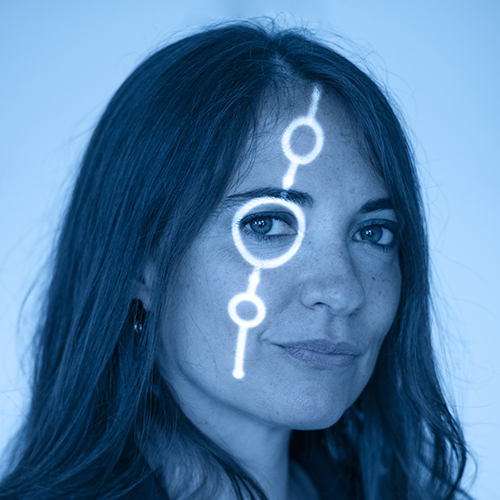
Lidia Pieri
Co-founder & CEO
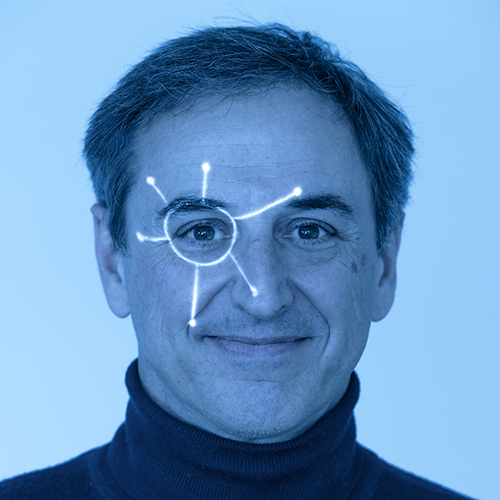
Roberto Della Marina
Board member
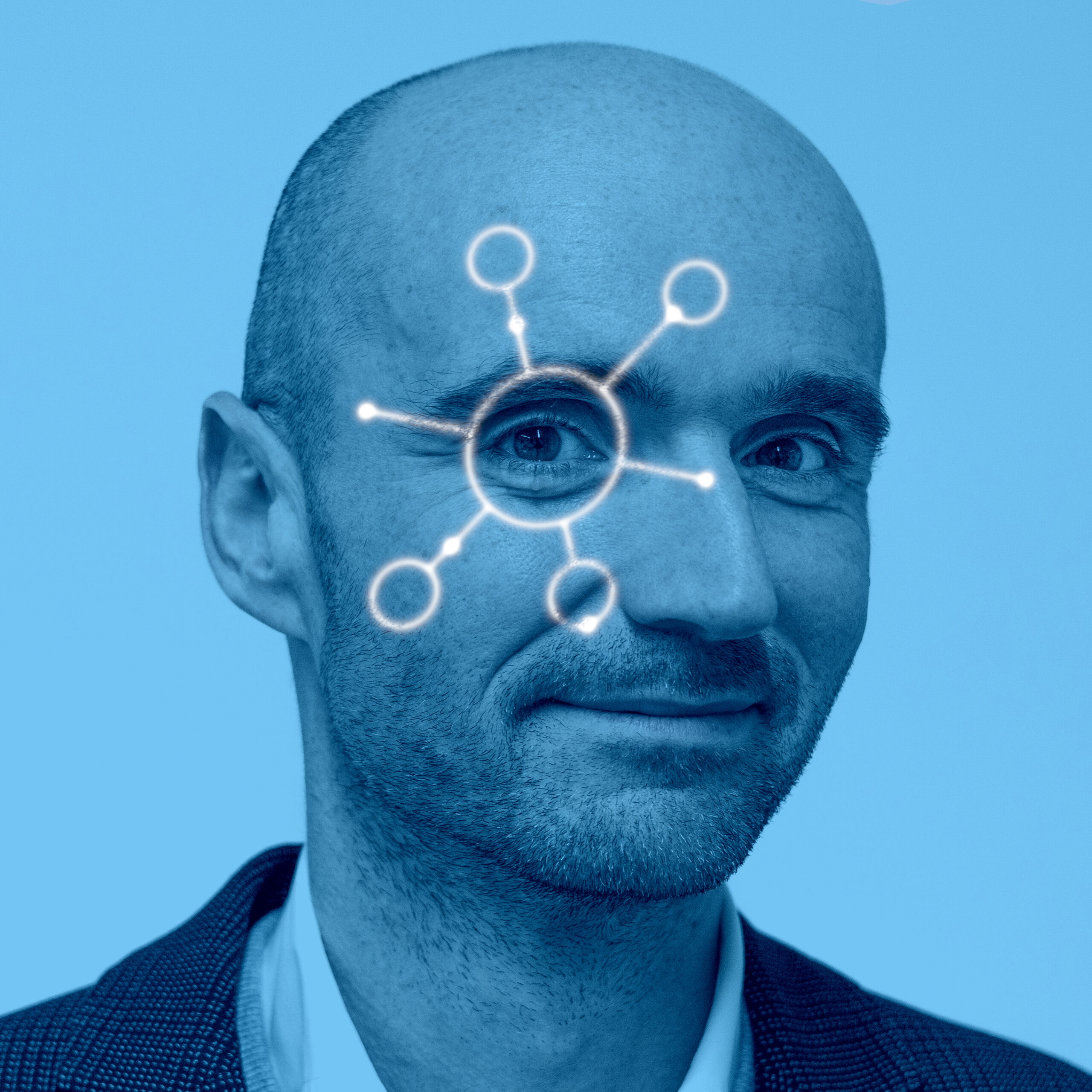
Ward Capoen
Board member
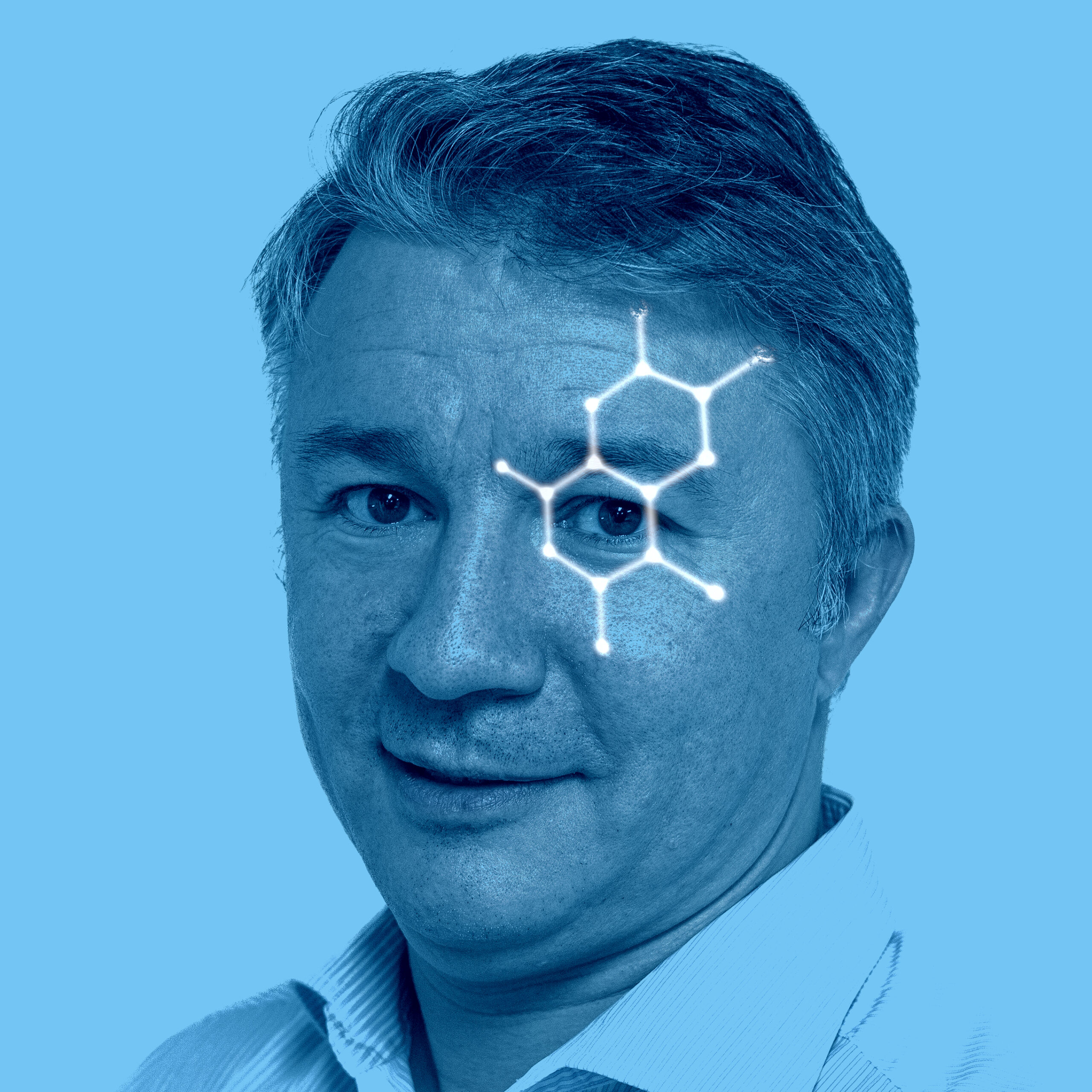
Bruno Montanari
Board member
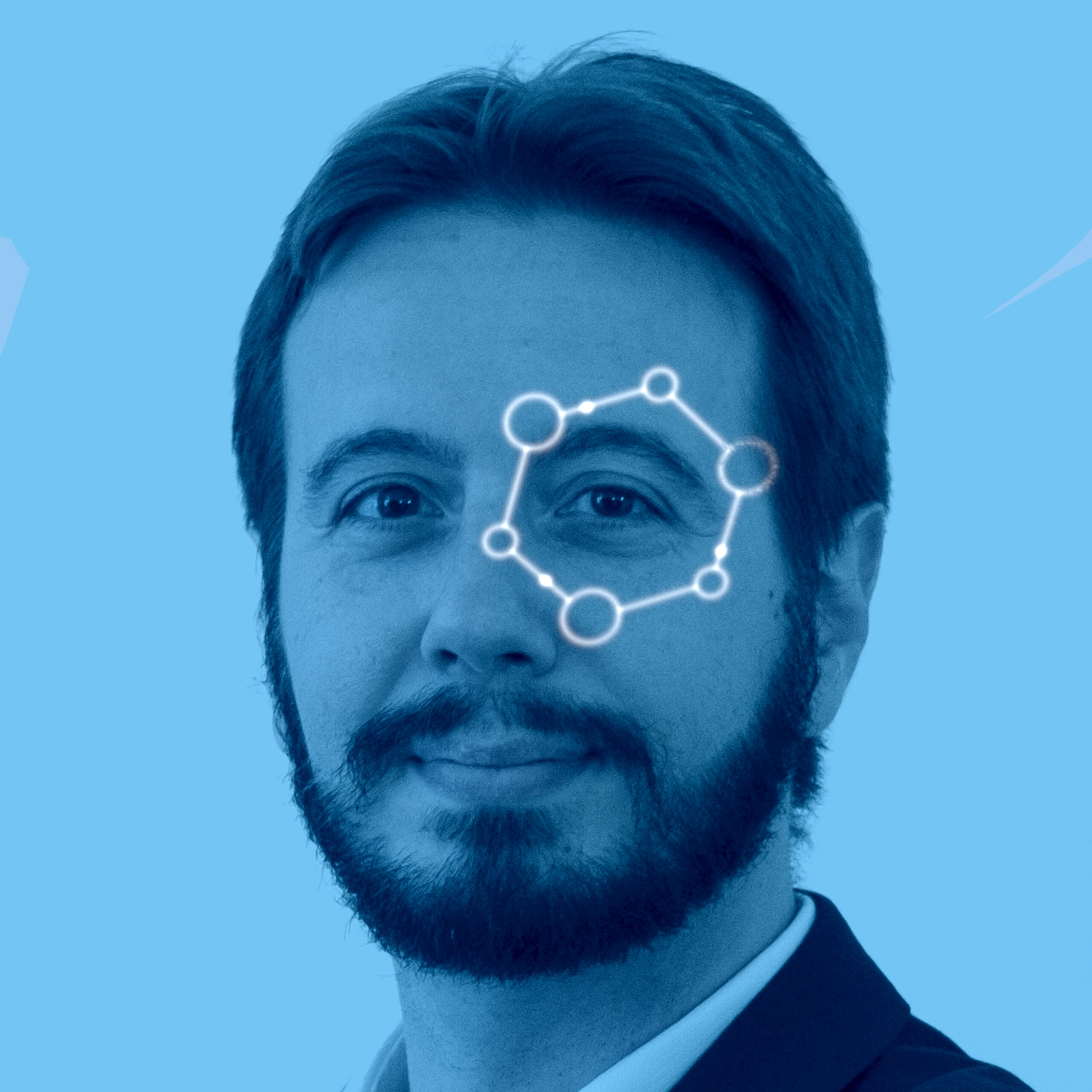
Ciro Spedaliere
Board member

Marianne Bjordal
Board member
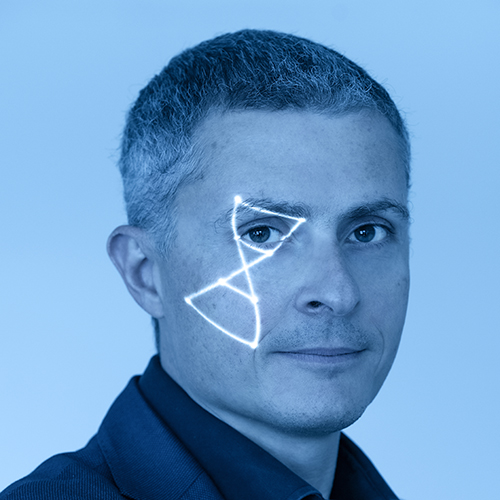
Emiliano Biasini
Co-founder & Board member
Executive team

Lidia Pieri
Co-founder & CEO
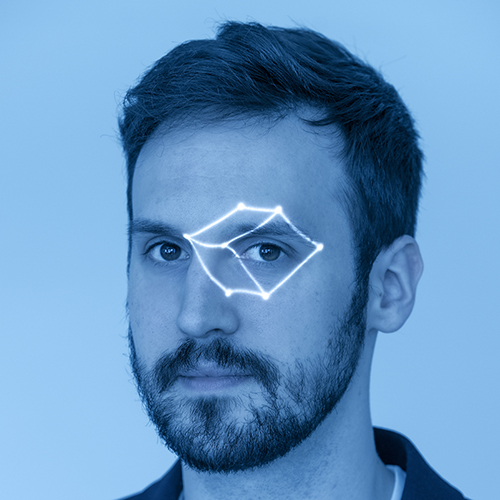
Giovanni Spagnolli
Co-founder & CTO
Computational Lab
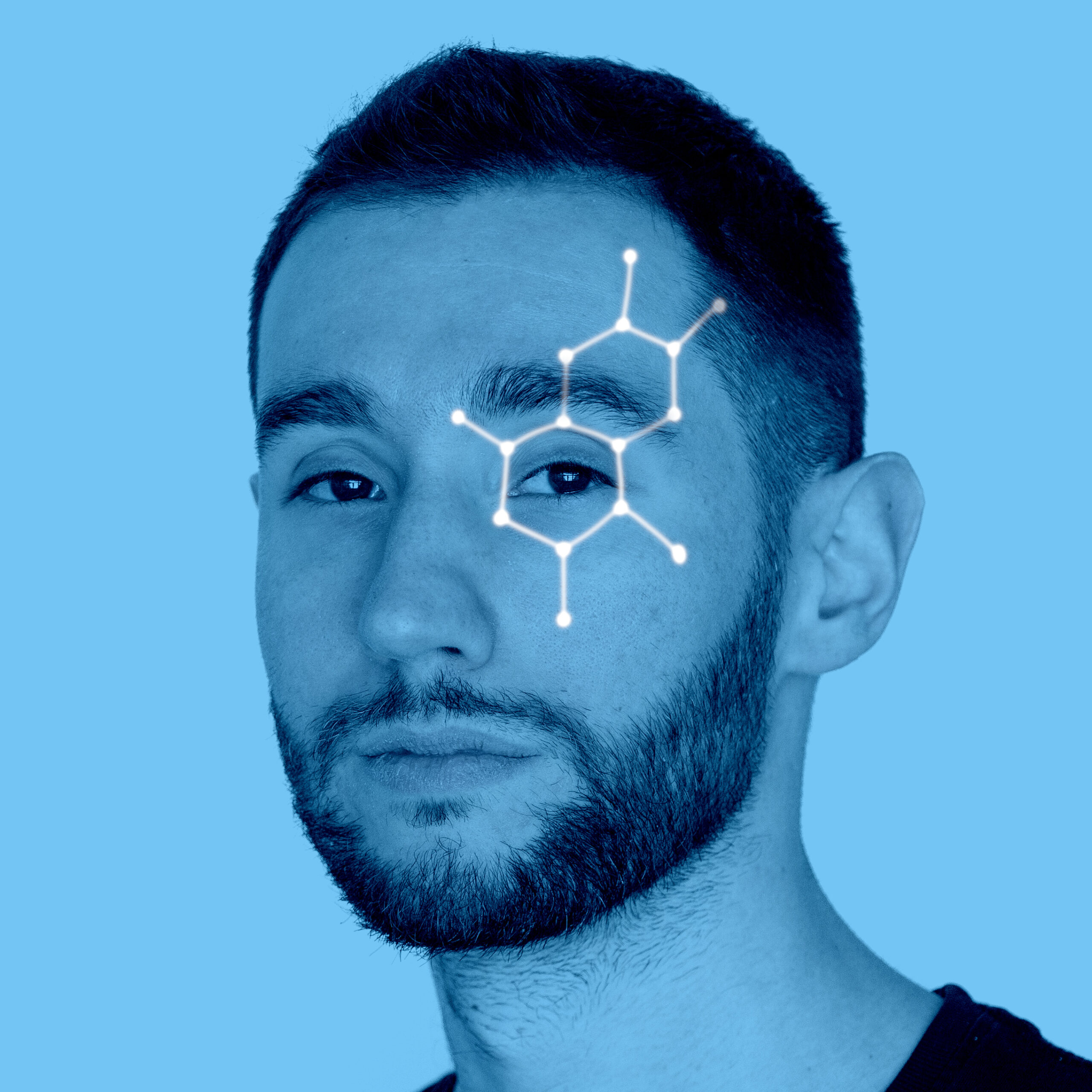
Alberto Boldrini
Principal Scientist

Cassiano Langini
Senior Scientist
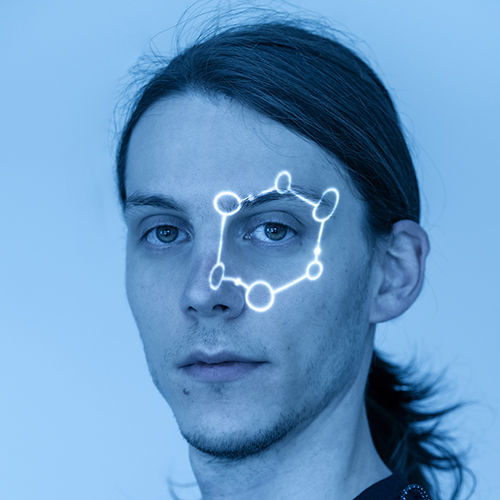
Luca Terruzzi
Principal Scientist
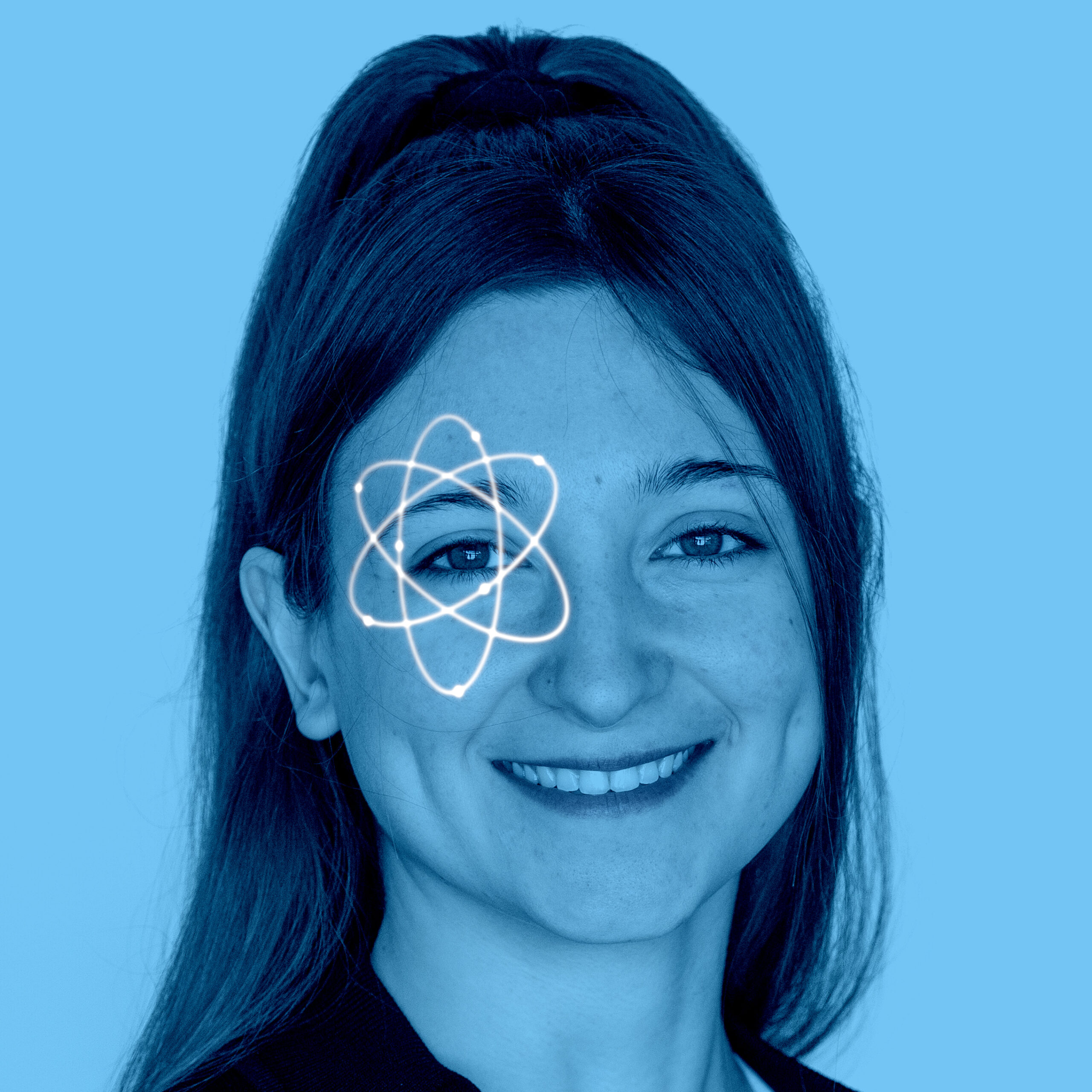
Enrica Colasurdo
Principal Scientist
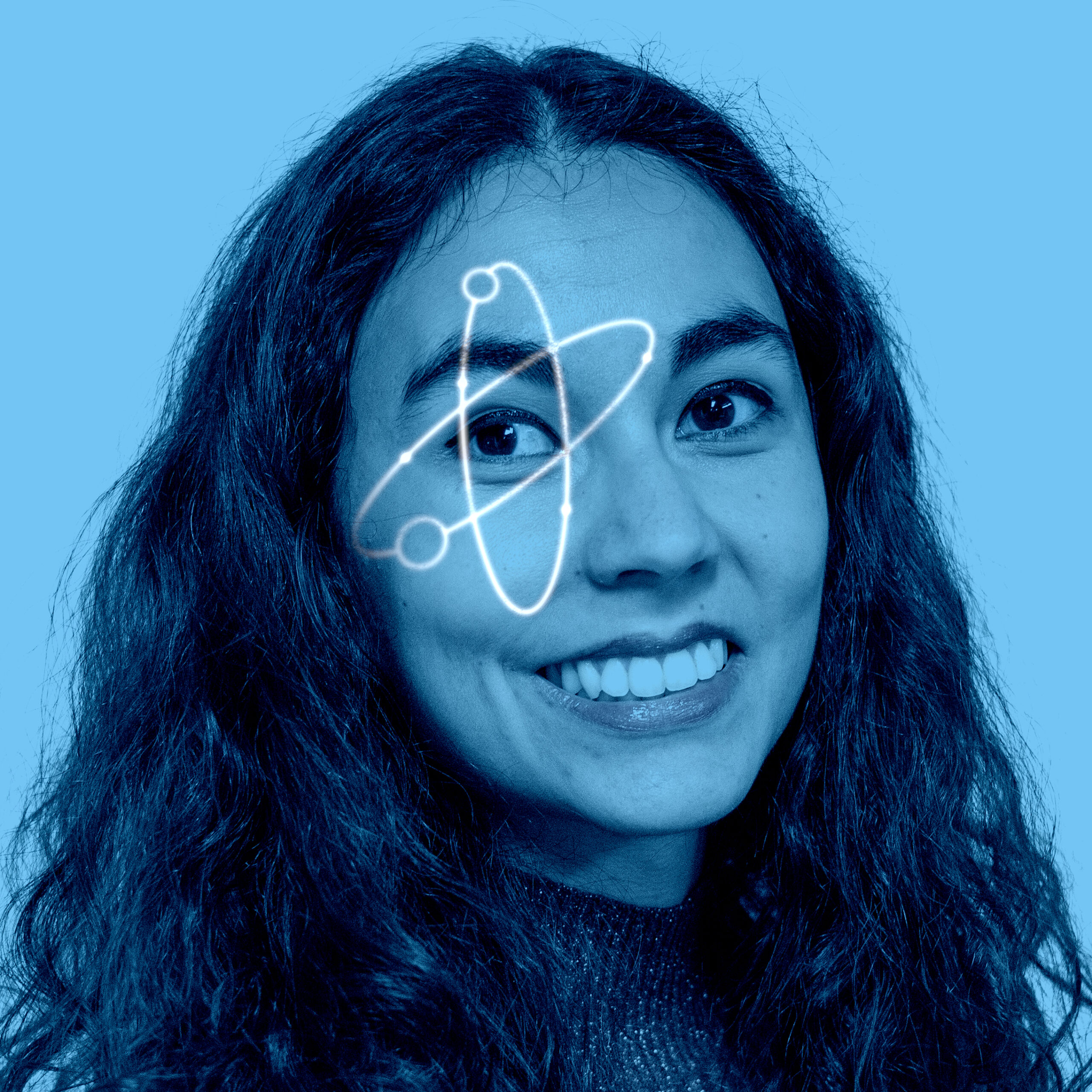
Cristina Risueño Fernández
Staff Scientist
Medicinal Chemistry Lab
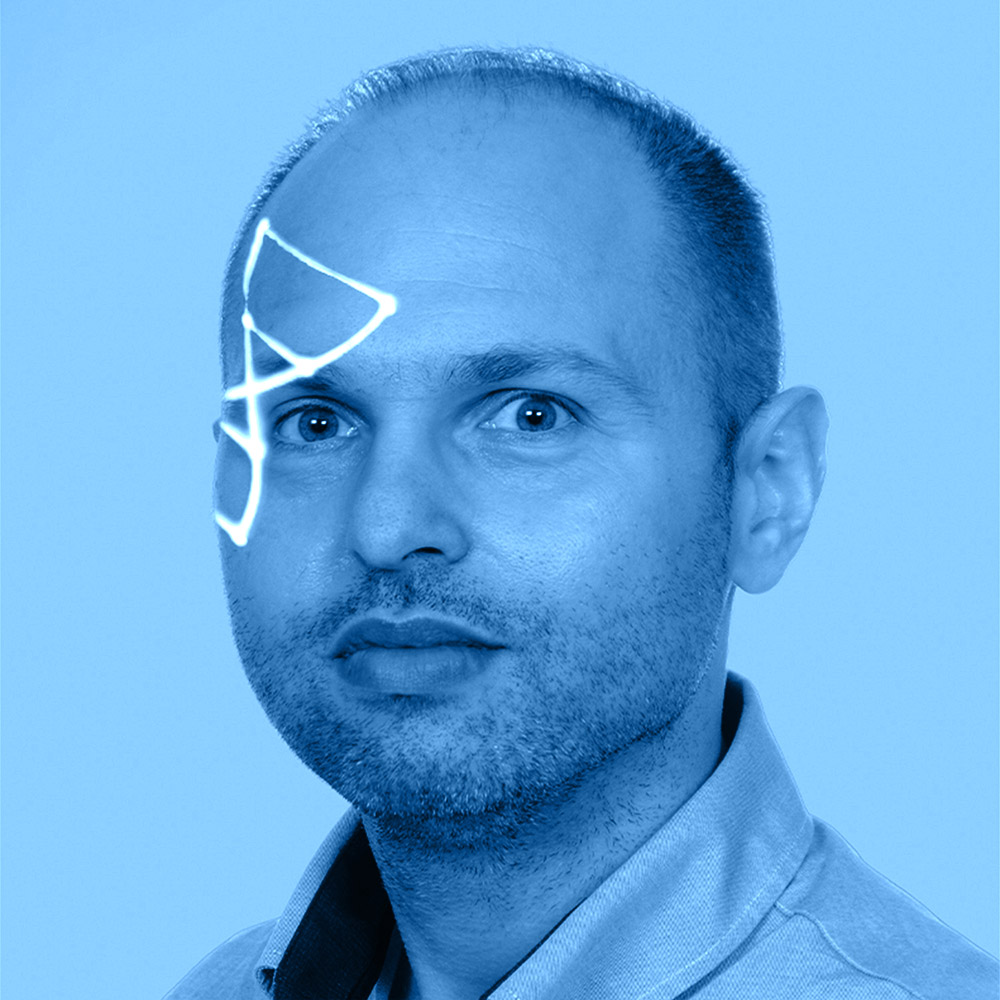
Alexandros Patsilinakos
Head of Medicinal Chemistry Lab

Leda Bencheva
Principal Scientist
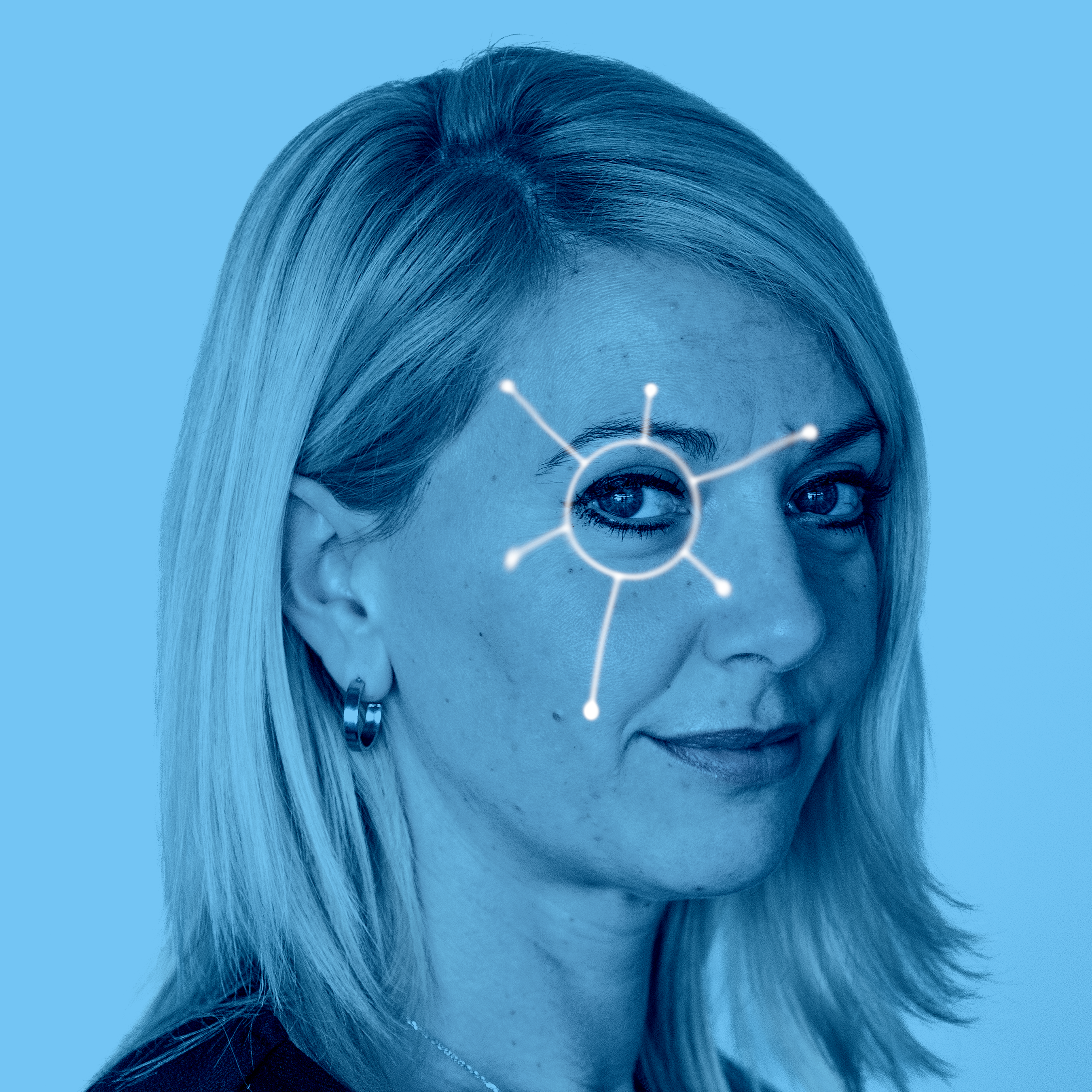
Letizia Lazzaro
Principal Scientist
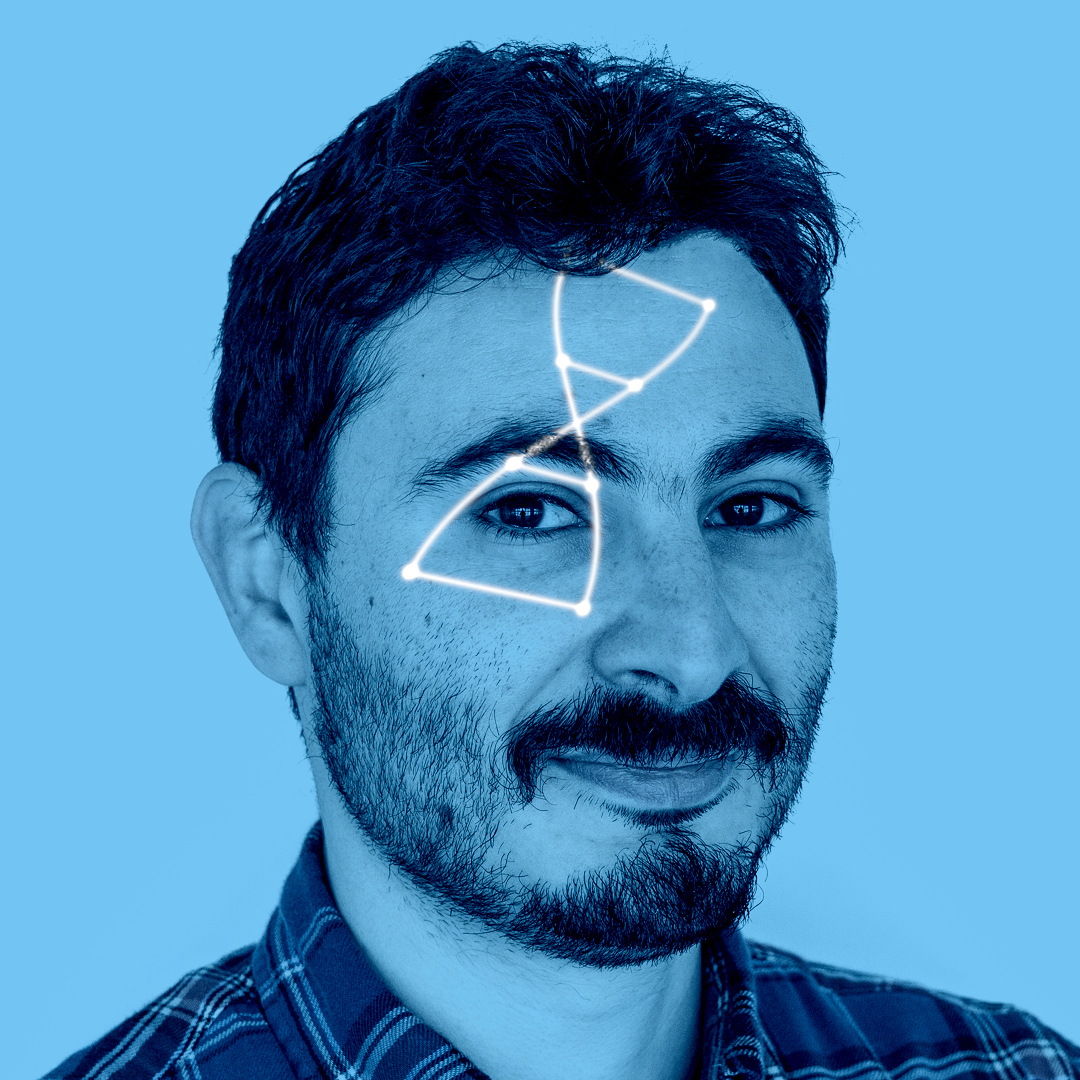
Carmine Varricchio
Senior Scientist

Fabiana Russo
Junior Scientist

Irina Stefanellli
Junior Scientist
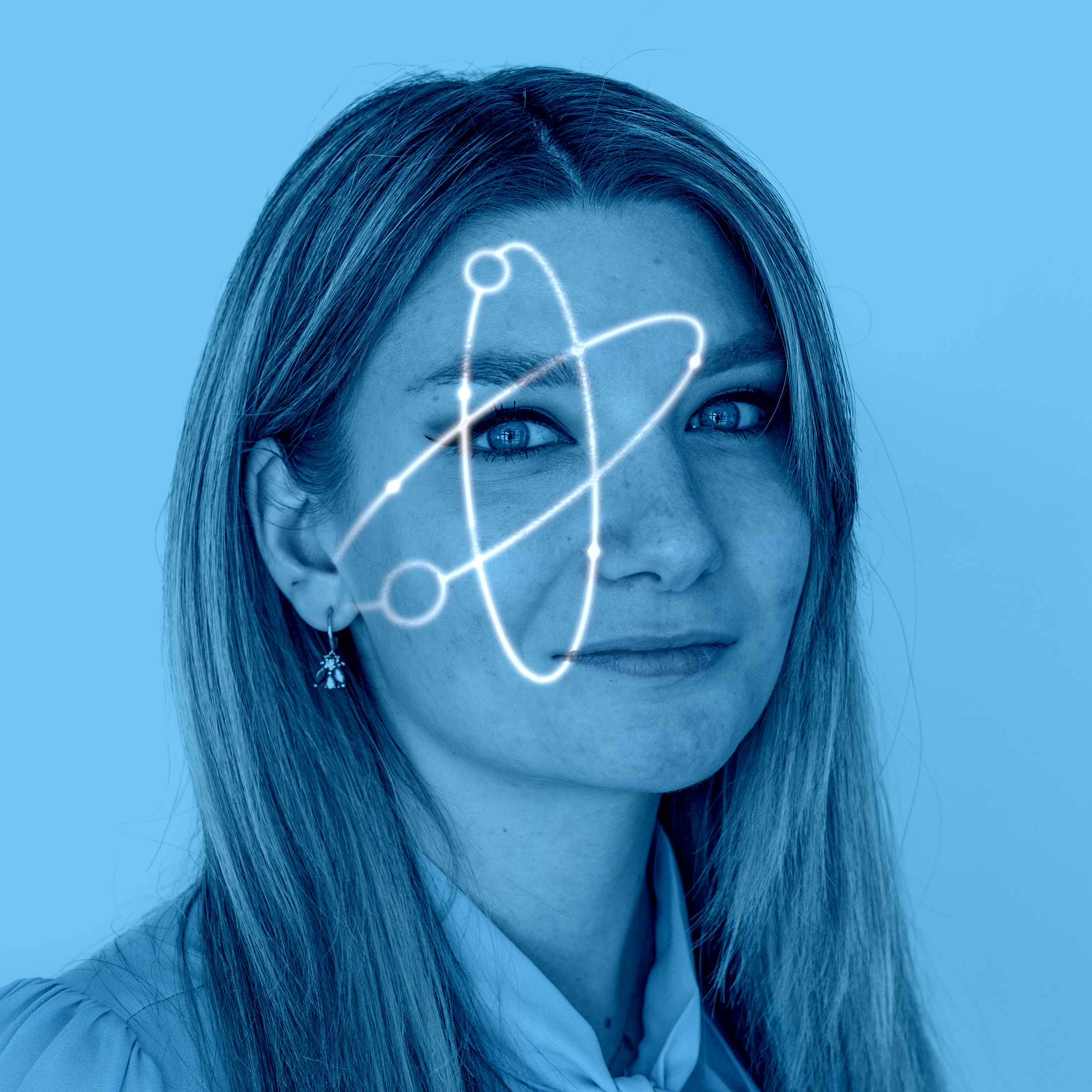
Emilia Cassese
PhD Student
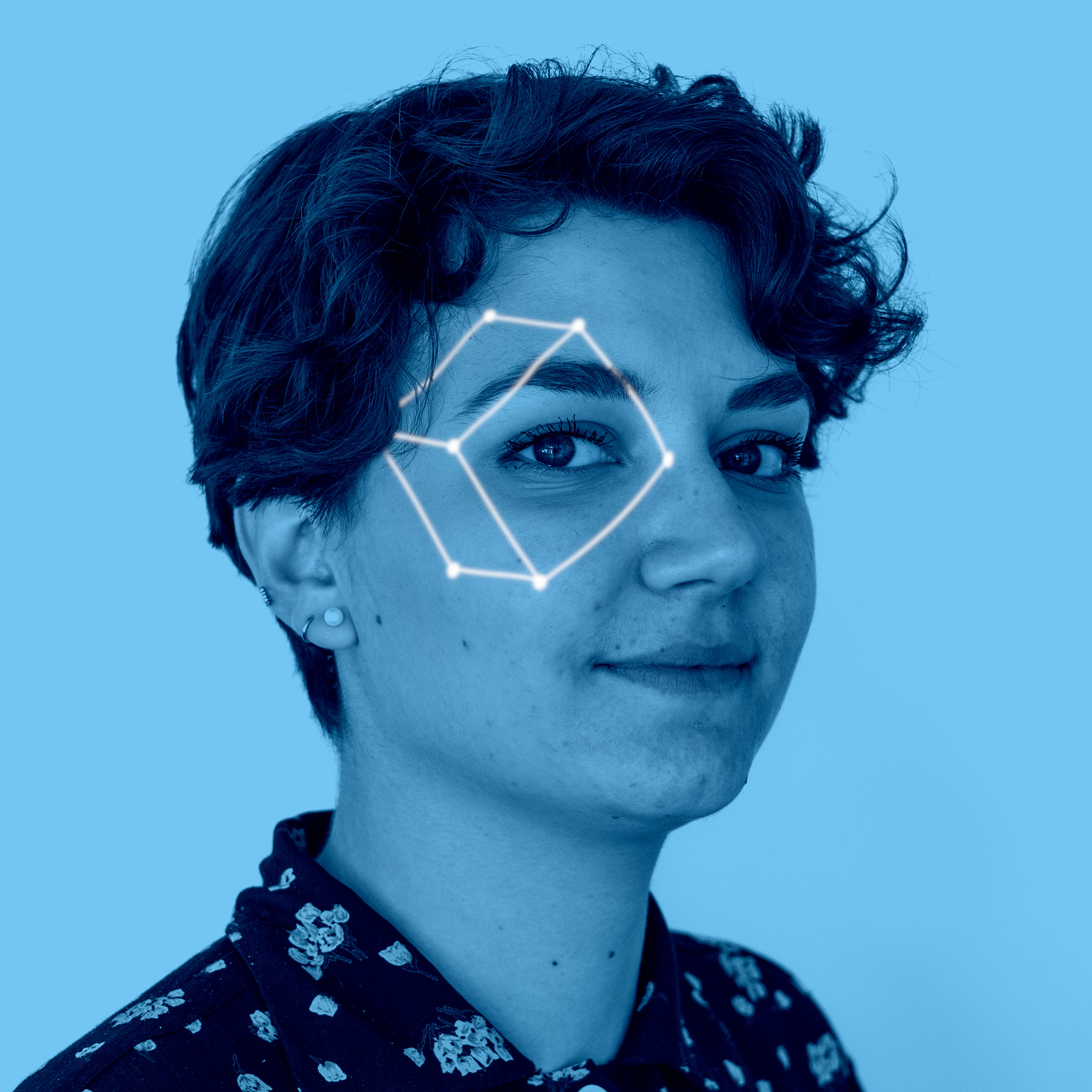
Erika Primavera
PhD Student

Lars Meuser
PhD Student
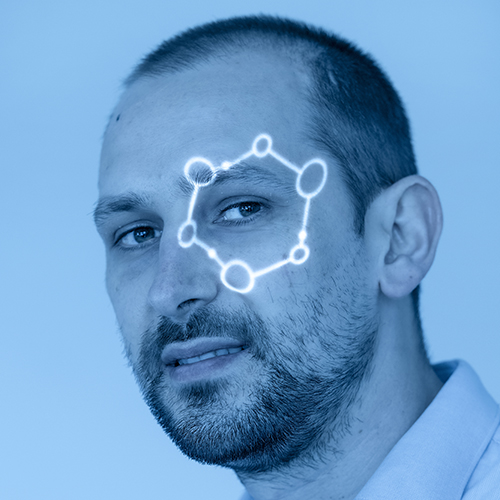
Andrea Astolfi
External Collaborator
In vivo Pharmacology
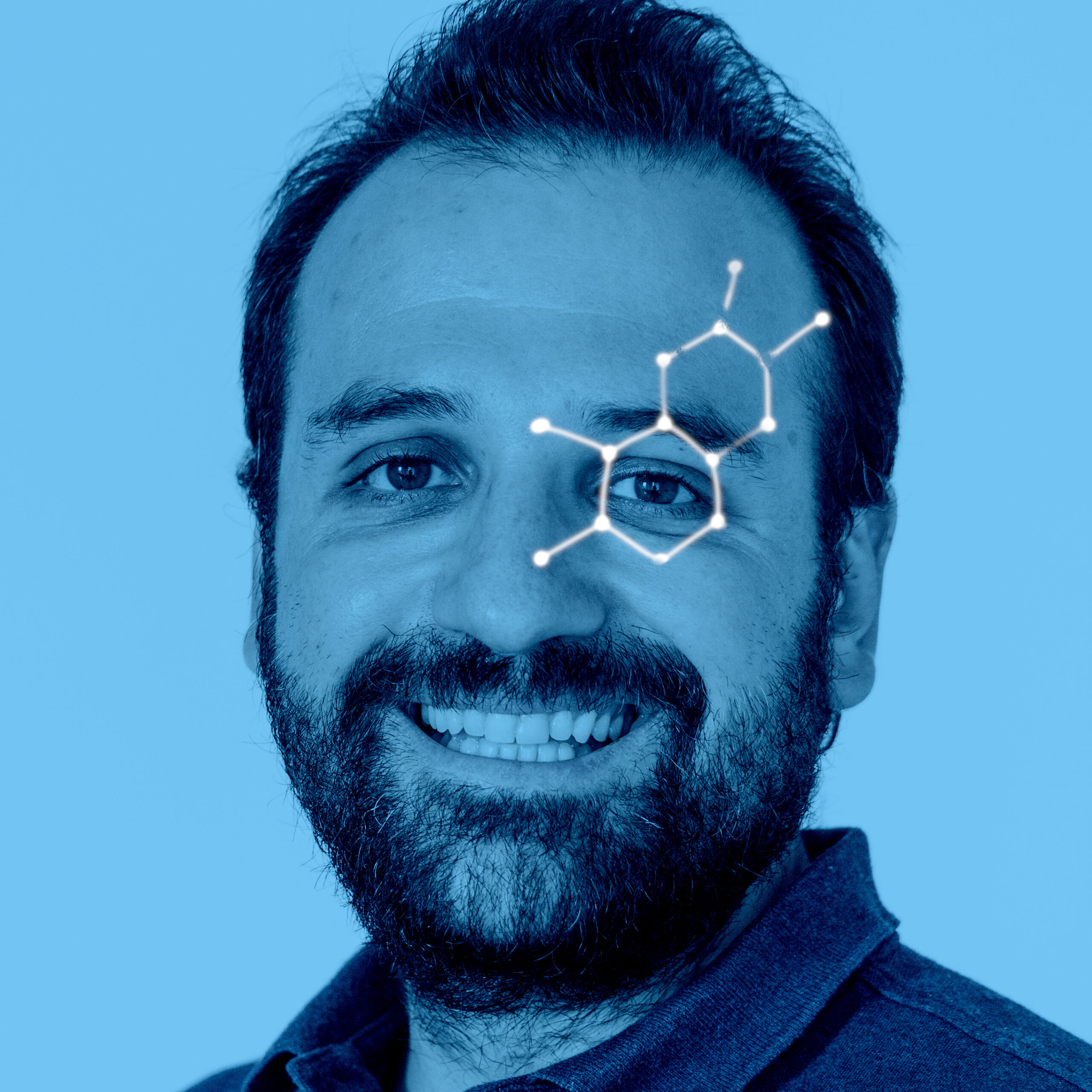
Simone Lanfredini
Principal Scientist
Biology Lab
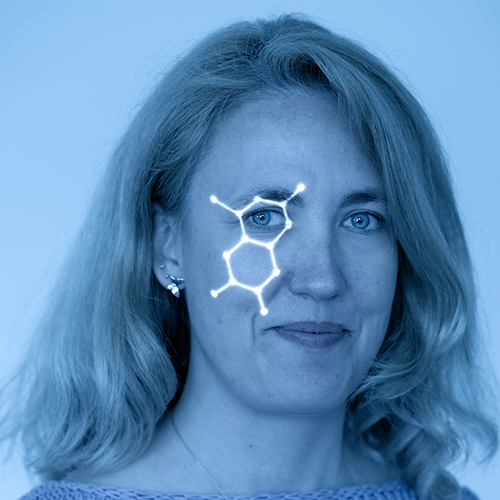
Tania Massignan
Head of Biology Lab
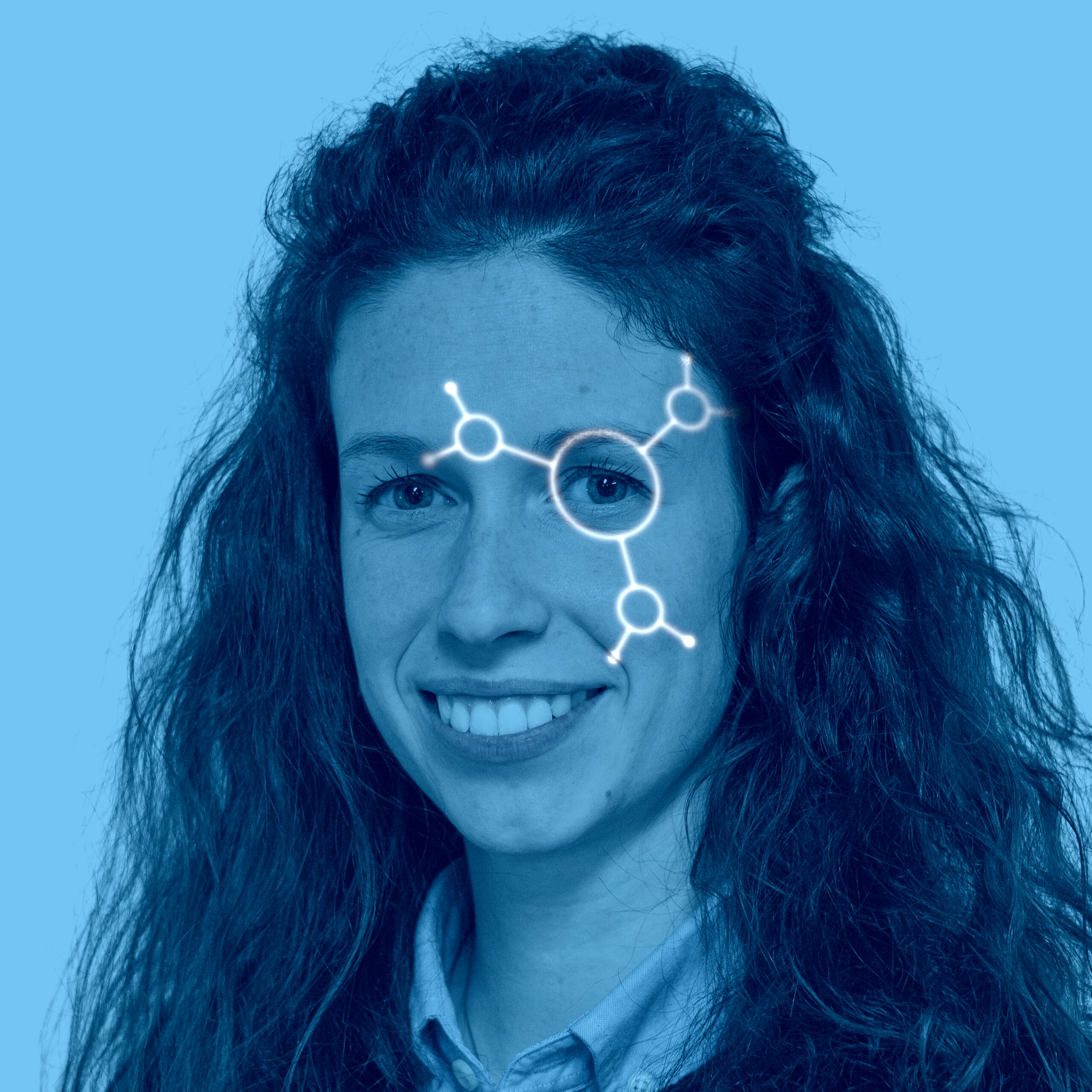
Laura Copat
Lab Technician
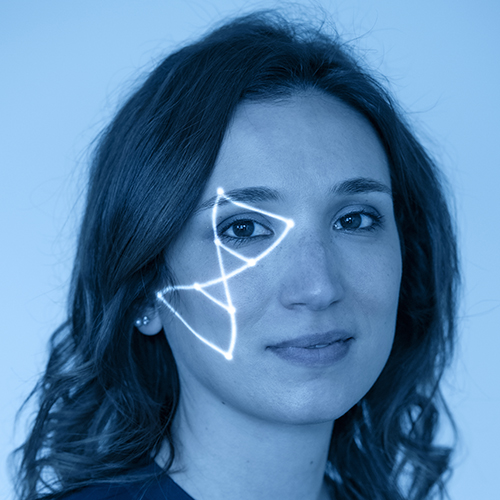
Serena Bonifati
Senior Scientist
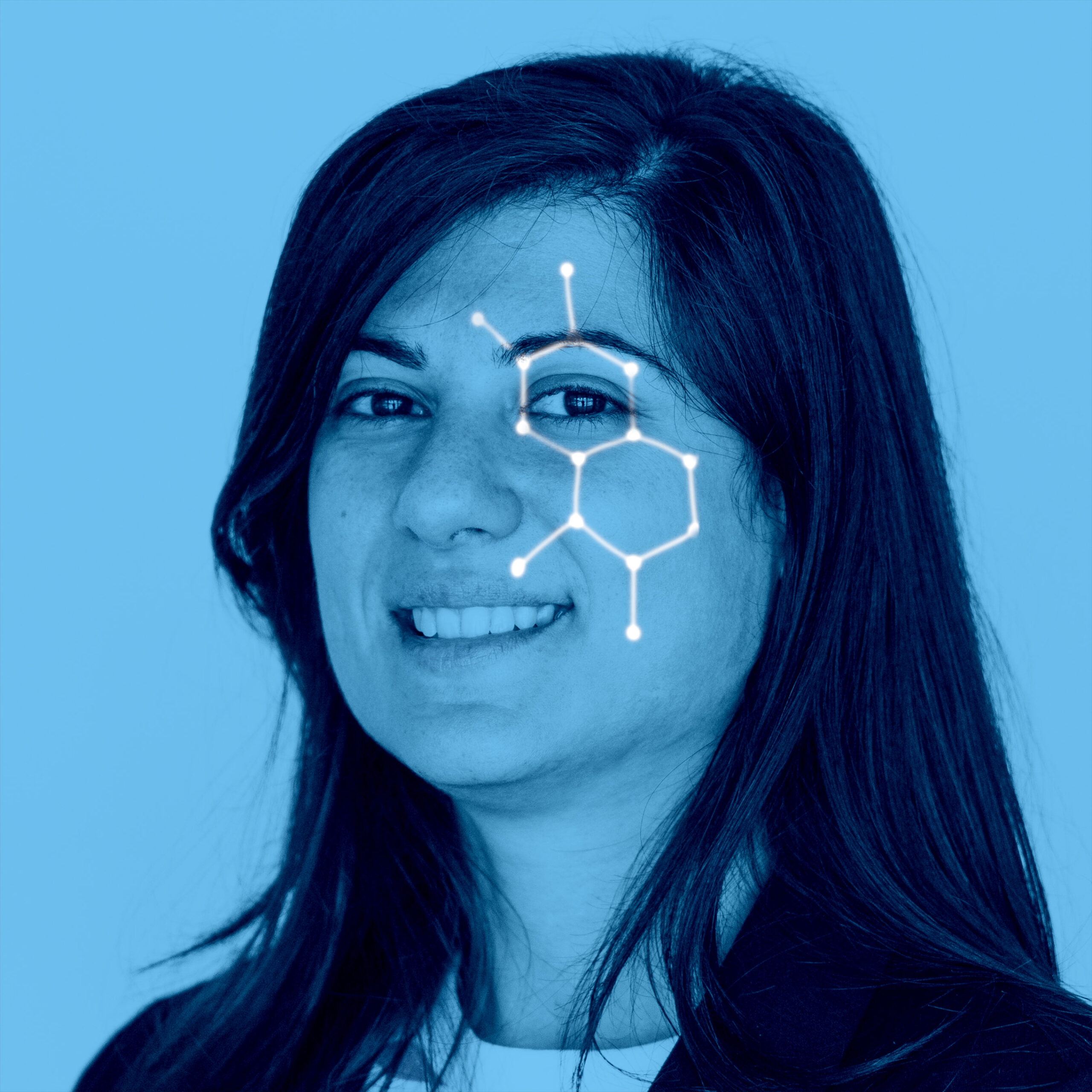
Clorinda Bello
Lab Technician

Roberta Gioia
Staff Scientist

Zhasmine Mirzoyan
Lab Manager

Giulia Frapporti
Staff Scientist
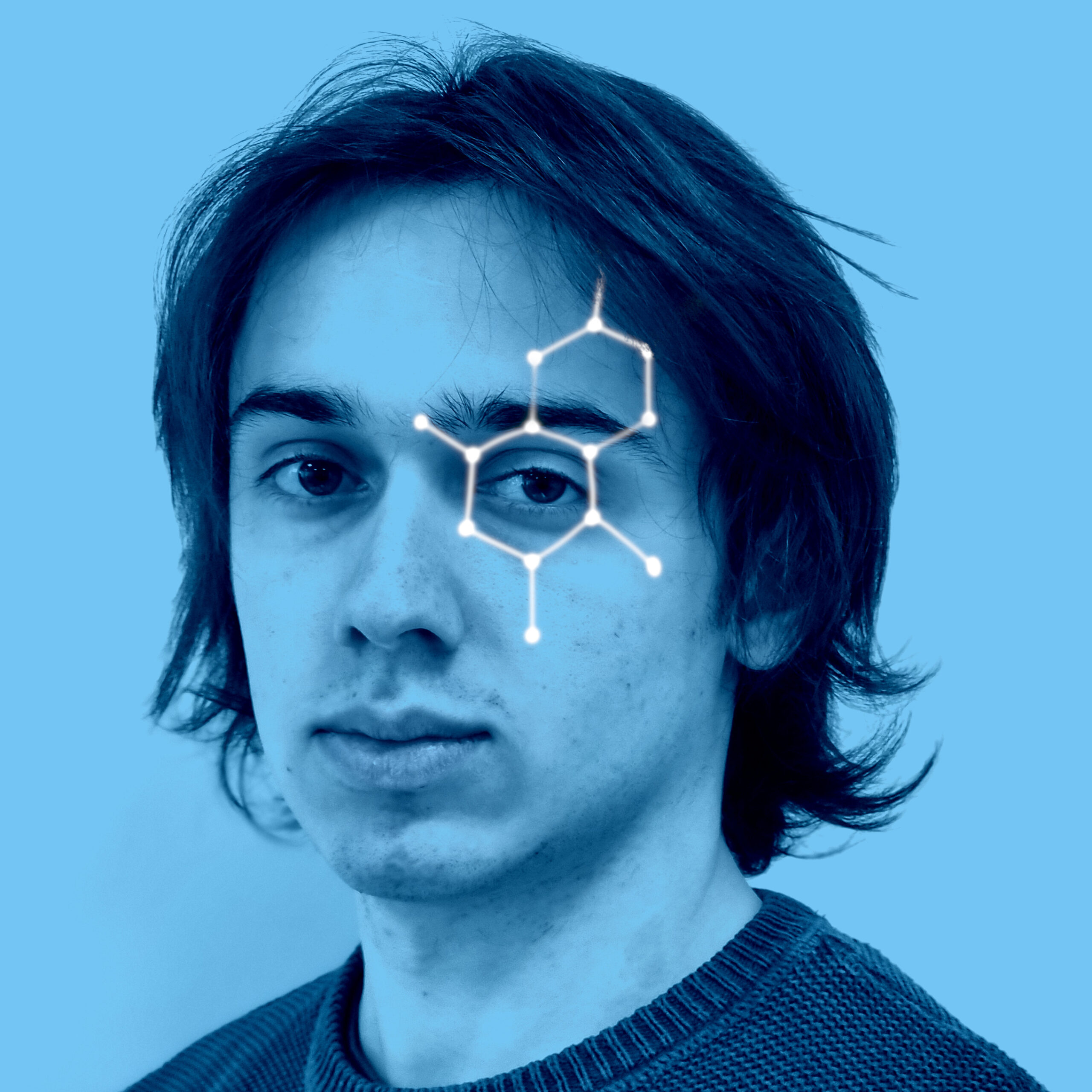
Dino Gasparotto
PhD Student
Business and Corporate Development
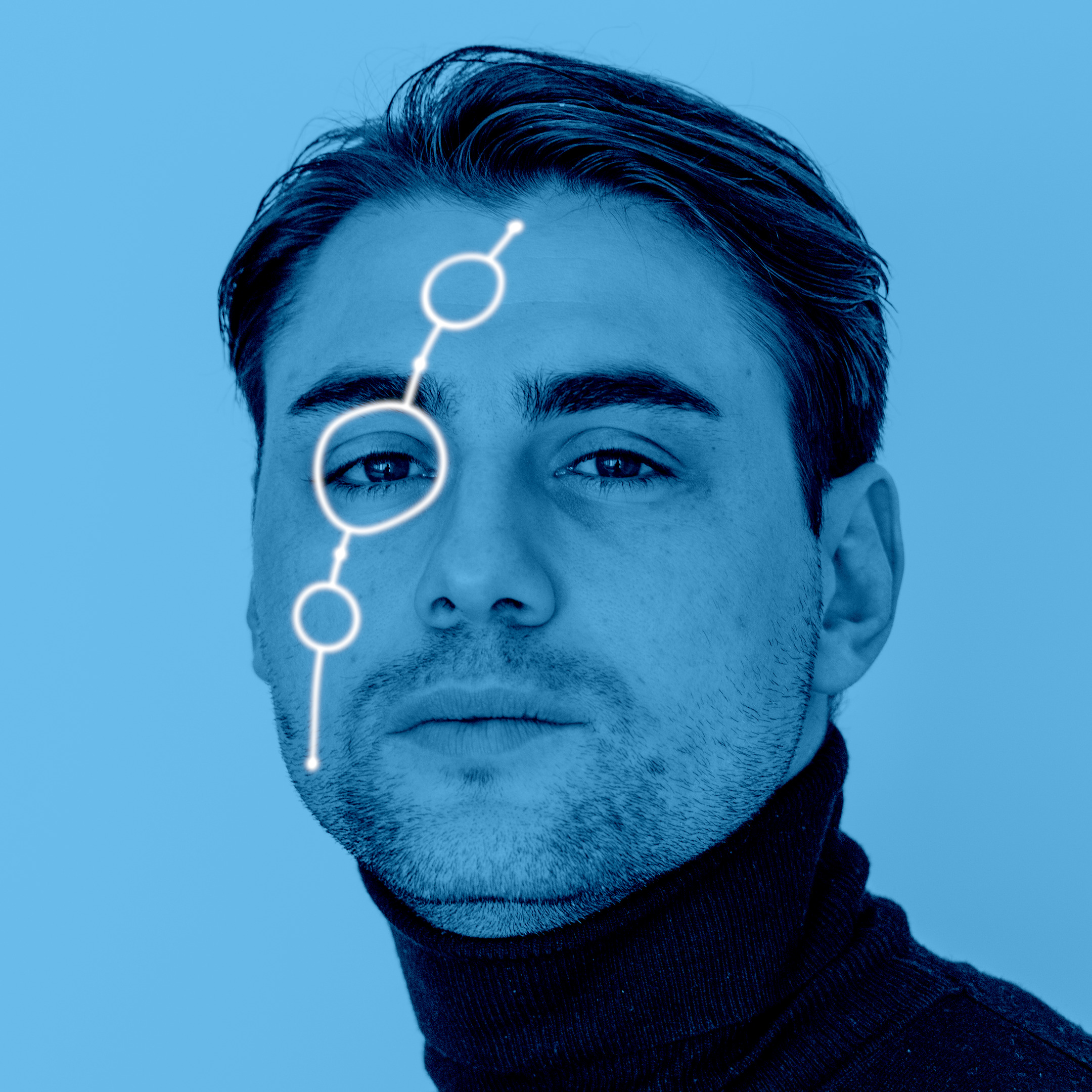
Lorenzo Alibrandi
Corporate Development Manager
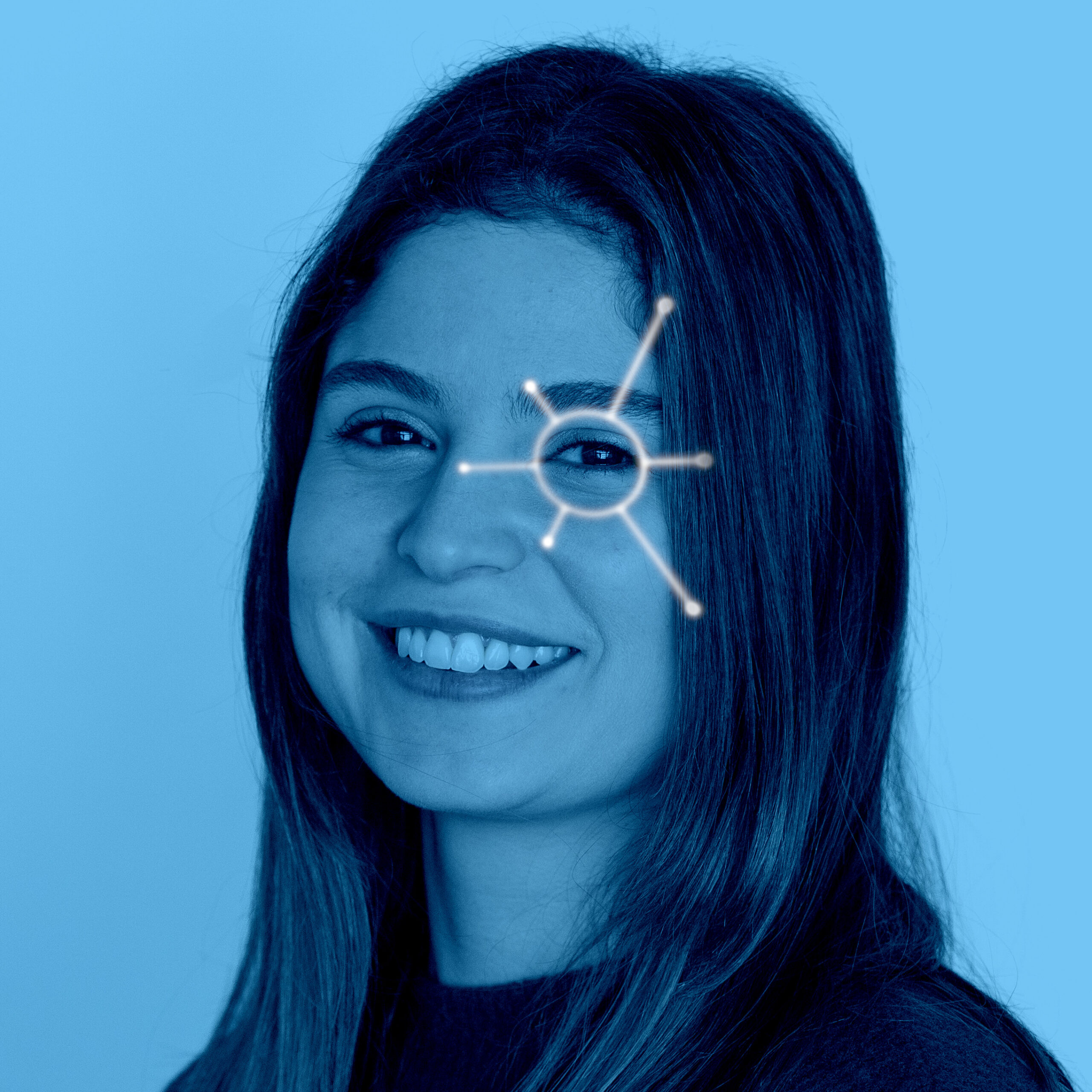
Sophie El-Hayek
Market Analyst & Junior BD
Academic Founders

Emiliano Biasini
Scientific co-founder & Board member
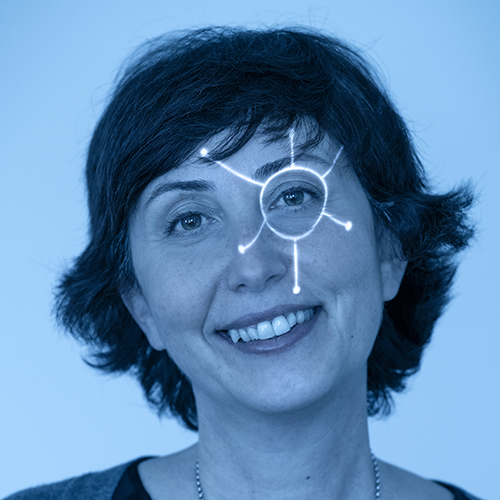
Maria Letizia Barreca
Scientific co-founder
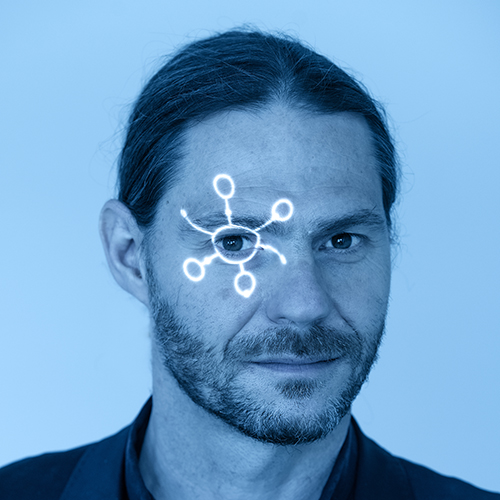
Pietro Faccioli
Scientific co-founder
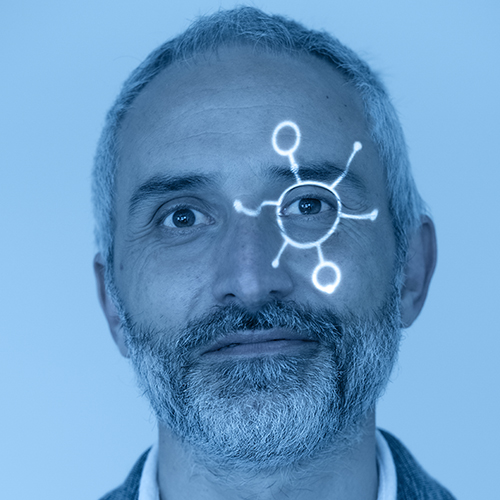
Graziano Lolli
Scientific co-founder

Advisory Boards
Scientific Advisory Board
Radoslav Enchev
Vincenzo Summa
Former VP Drug Discovery at IRBM.
Mario Varasi
Peter Maycox
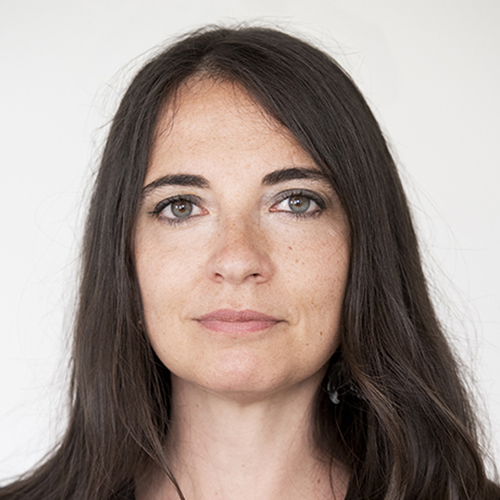
Lidia Pieri
Lidia Pieri earned a Master’s degree with honors in high energy physics at CERN, a Ph.D. in theoretical astroparticle physics from Rome-3 (Italy) and an Executive MBA in Business Innovation with honors from the MIB school in Trieste. During the academic period she gained international exposure and recognition working as a research associate in several highly ranked institutes in Europe and authoring tenths of peer- reviewed papers in astrophysics, high energy physics, and computational biophysics. She proactively helped create new practices and a multidisciplinary research group, where she experienced scientific and team project management.
Driven by a never-stopping scientific passion for incoming technologies and their possible exploitation for a better future, in 2017 she played a key role in the vision and founding of Sibylla Biotech.
As a co-founder and CEO, she raised € 25.4M of VC investment, fostered and negotiated a collaboration contract with Takeda Pharmaceutical, built the business and financial plan and led the operations. Engagement and satisfaction of the employees, as well as an ethical use of strengths and competencies are among her major commitments.

Dominique Bridon
Dr. Bridon is an R&D executive with extensive North American and international experience of drug development from research to proof-of-concept clinical studies (Phase II) and regulatory submission in EU and US. 25+ years of experience with development of innovative therapies across multiple therapeutic areas to treat cancer, infectious, metabolic and cardiovascular diseases. He previously held various management positions at Abbott laboratory, Optivia (acquired by BioIVT), Ipsen, Enobia (acquired by Alexion), Epivax Oncology and Neuronax and served on the scientific boards of Syntaxin (acquired by Ipsen), Biosortia and Concarlo Therapeutics. He co-founded Conjuchem (IPO on the TSX and acquired by Abraxis). He is currently CEO of Diaccurate, a Paris-based start-up developing precision cancer therapies.
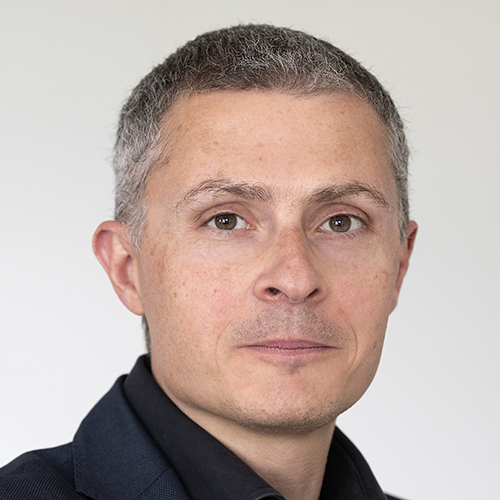
Emiliano Biasini
Prof. Biasini received a broad education in pharmacology, biochemistry, molecular biology and neurobiology, with specific training in various aspects of neurodegenerative disorders. During his postdoctoral training at Washington University in St Louis, at the Mario Negri Institute in Milan, and later as a junior faculty at Boston University School of Medicine, he employed a variety of techniques of biochemistry and biophysics to elucidate basic principles of protein aggregation in several model systems, including cultured cell lines, primary neurons, neural stem cells and transgenic mice.
For the last 8 years, as a group leader at the Italian National Institute of Health, and later as an Associate Professor at the Department of Cellular, Computational and Integrative Biology (CIBIO), University of Trento, he built a team of young researchers with expertise in the fields of computational chemistry, biochemistry, biophysics and neurobiology. Work in the Biasini’s laboratory covers a wide spectrum of topics related to prions and amyloids, across physiology and disease, with the ultimate objective to define novel therapeutic strategies for neurodegenerative disorders.
In 2017, Prof. Biasini co-invented the PPI-FIT technology with Prof. Faccioli and co-founded Sibylla Biotech S.R.L. to exploit the commercial potential of the invention.
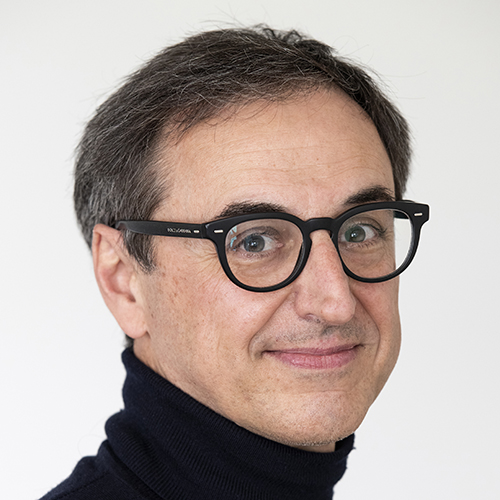
Roberto dalla Marina
After one decade of experience mostly in Switzerland at CERN (Geneva, CH), CSEM SA (Neuchâtel, CH) and Colibrys SA (Neuchâtel, CH), where he started working as a researcher and then moved to managerial positions, in 2003 he accepted the position of VP Business Development and Director of Technology Innovation of Olivetti I-Jet SpA (Ivrea, TO).
In 2007 he became General Manager of the Cluster in Molecular Biomedicine of Friuli-Venezia Giulia, a public-private initiative focused on linking together research centers, companies, institutions and financing bodies in the field of personalized medicine. From 2010 till 2017 he became Partner of AlAdInn Ventures Fund, Friulia Veneto Sviluppo SGR SpA, as well as Deputy Chairman of AREA Science Park – an Italian National Research body dedicated to Technology Transfer – as well as GM of Innovation Factory, its first mile company incubator.
Today he continues to serve as Board Member in several companies and foundations, among those, the Bruno Kessler Foundation in Trento, Italy. He holds a Laurea cum laude in Physics from the University of Trieste (I) and a Ph.D. in Physics from ETH Zürich (CH), is co-author of more than hundred scientific papers and he keeps teaching finance and innovation in some universities and institutions in Italy. In 2015 he won the AIFI-EY “Claudio Dematté Price – Private Equity of the Year” for the best Italian Early Stage operation.
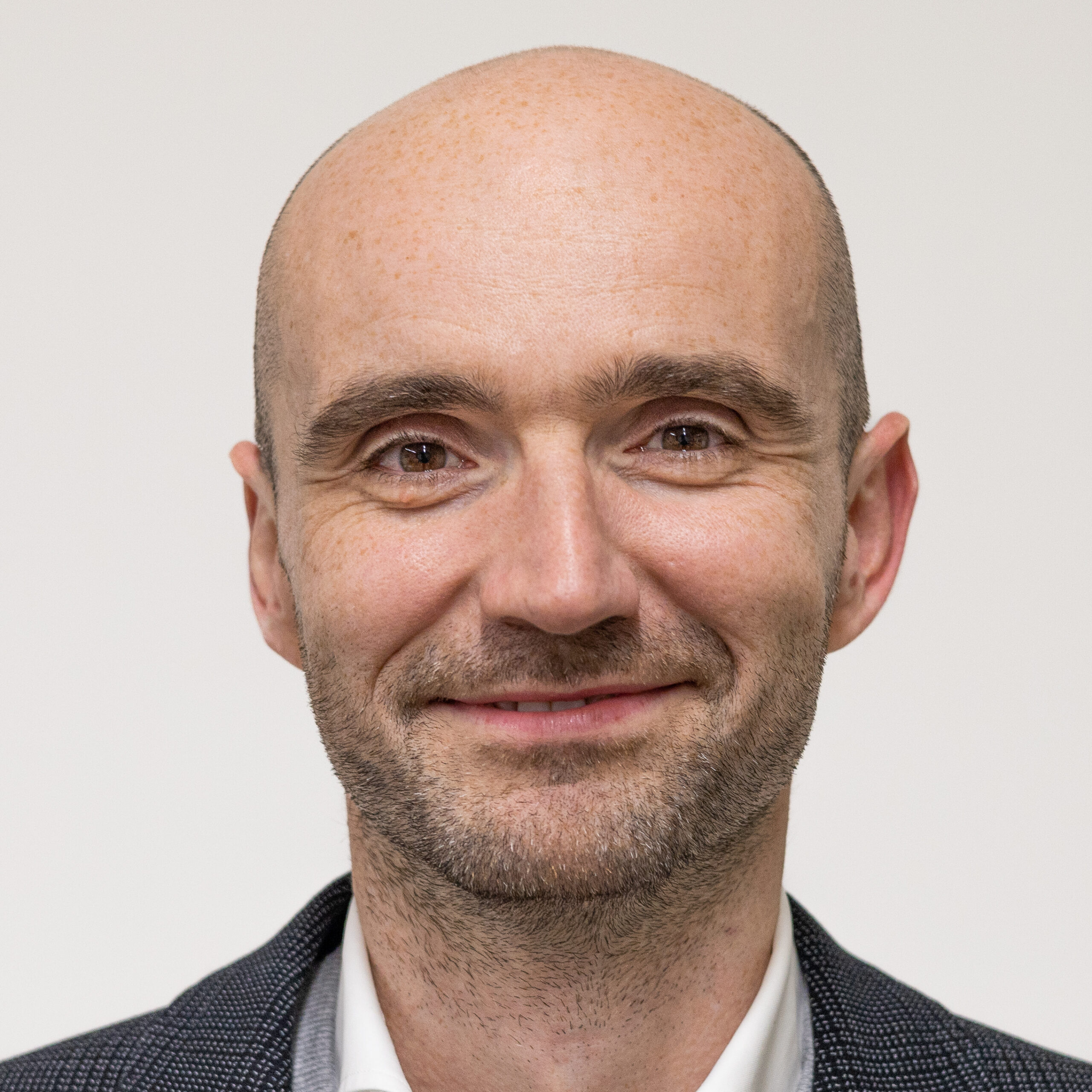
Ward Capoen
Ward Capoen is Partner at V-Bio Ventures, which he joined in 2016. Before joining V-Bio, Ward spent over a decade doing molecular biology research at VIB (BE), the John Innes Centre (UK) and Harvard Medical School (USA). His expertise spans both plant and animal models and ranges from fundamental to translational research. Prior to V-Bio Ventures, Ward worked as a senior analyst at Candriam Investors Group, where he was responsible for investment analysis of early-stage listed biotech companies.
Ward holds a PhD in Biotechnology from the University of Gent (BE). He also has an MBA from Vlerick Business School (BE).
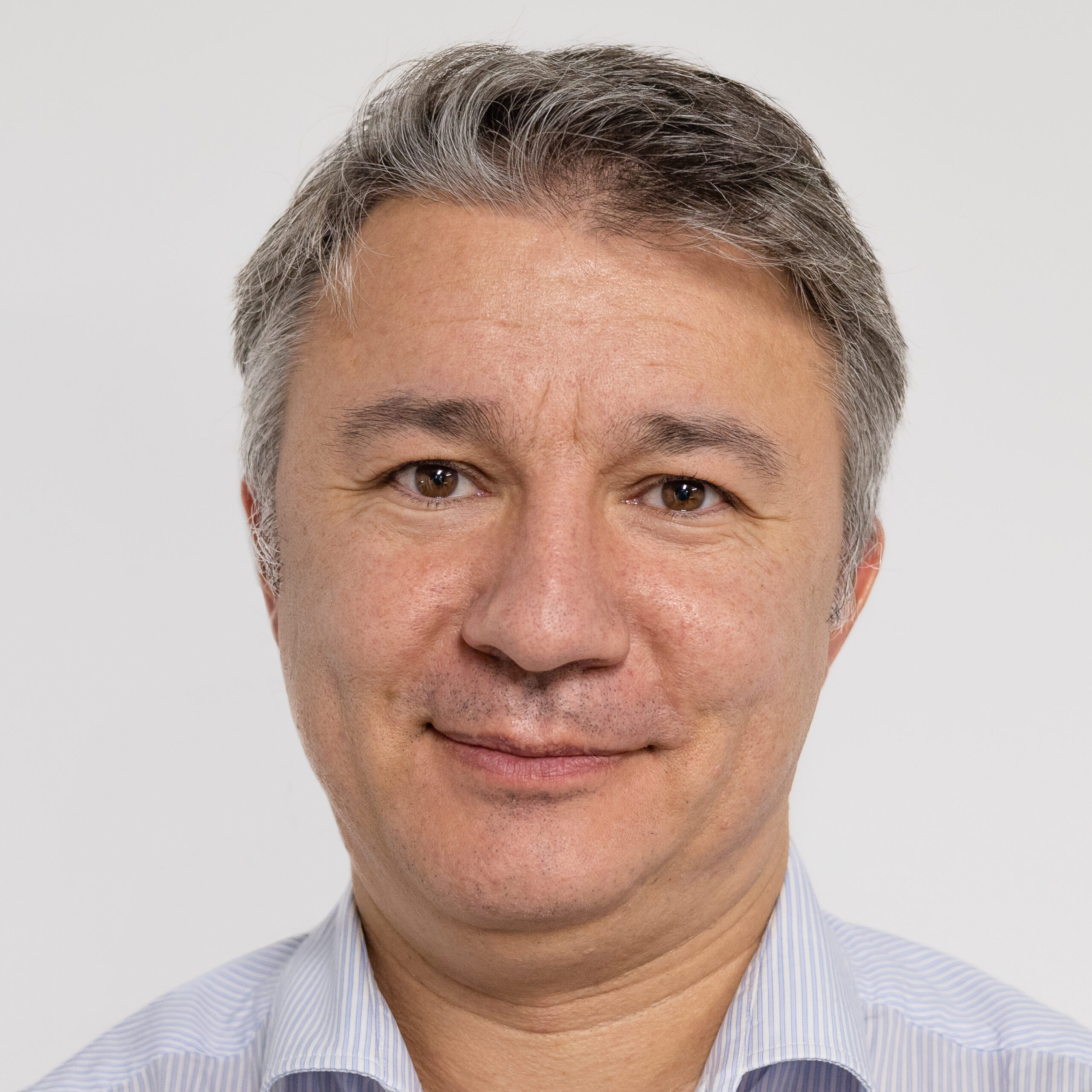
Bruno Montanari
Bruno Montanari is a Partner at Seroba. He has a background in venture capital and in investment banking, with a focus on the pharmaceutical, biotechnology and medical device industries.
Bruno graduated in 1998 with a PharmD. from the Université René Descartes, Paris V and in the same year completed a Master’s degree in Strategic Management at HEC.
Prior to joining the firm in 2017, Bruno was a Partner at Omnes Capital (Paris) in charge of life sciences investments for the venture capital team. His previous venture capital experience was at Atlas Venture (Paris/London) and CDP Capital (Paris/Montreal). He started his career in 1999 in London, in the healthcare teams of the investment banking divisions of Deutsche Bank and later Merrill Lynch. Bruno brings a wealth of experience and network, particularly in continental Europe, where he is based.
Bruno sits on the boards of Coave Therapeutics, STORM Therapeutics, and Sibylla Biotech.

Marianne Bjordal
Marianne joined 3B Future Health Fund in 2018 and was promoted to Partner in 2022. She has more than 15 years experience in research and early stage investment. Prior to joining 3B Future Health, Marianne worked as a researcher for the French National Centre for Scientific Research (CNRS). She is a former Marie Curie Early-Stage Researcher and was awarded the AXA Prize from the French Academy of Science in 2014.
Marianne received an M.Sc. in Molecular Biology from the University of Bergen in Norway, a Ph.D. in Molecular and Cellular Biology from the University of Nice in France and an MBA from the IAE Nice Graduate School of Management, France.
She is a former board member of Gain Therapeutics Inc [GANX] and currently serves on the board of NeoPhore Ltd, GenEp Inc. and Sibylla Biotech
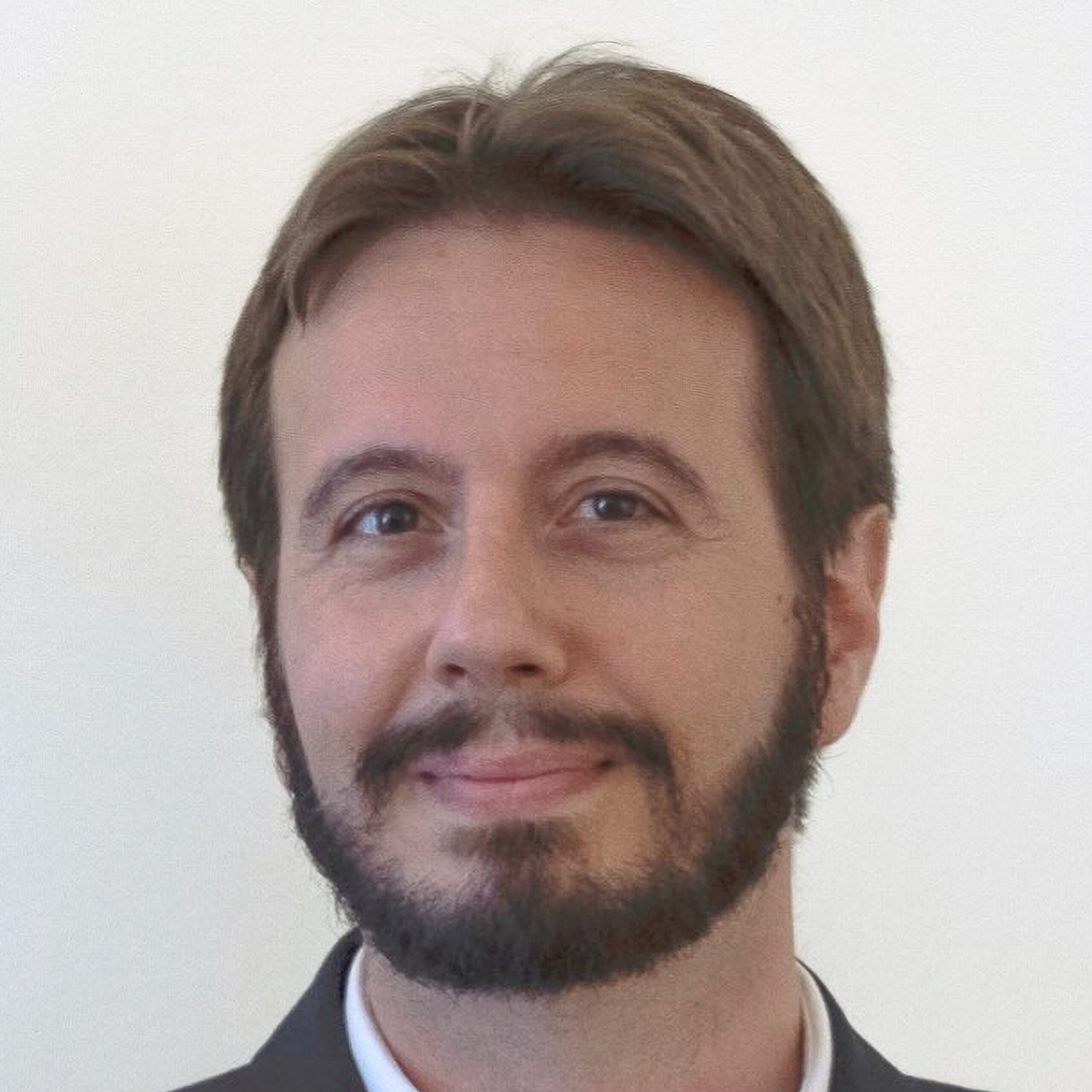
Ciro Spedaliere
Ciro Spedaliere is co-founder and managing partner at Claris Ventures SGR, the first Italian venture capital fund focused exclusively on biotech, investing in high potential biopharma companies arisen from the Italian R&D ecosystem – both local and international. He has a decade long experience in the venture capital investing across the main innovation sectors throughout his career (Innogest SGR, LVenture Group, Invitalia Ventures SGR, Vertis SGR).
In the past, he worked as a product manager dealing with strategic planning, development of innovative products and services. He has also collaborated with the academic world on venture investing issues and teaches venture capital and innovation topics at some universities in Italy. Ciro holds a degree in Management Engineering from the Polytechnic University of Turin and has earned his specialization at the Venture Capital Executive Program at the Berkeley Haas Business School.
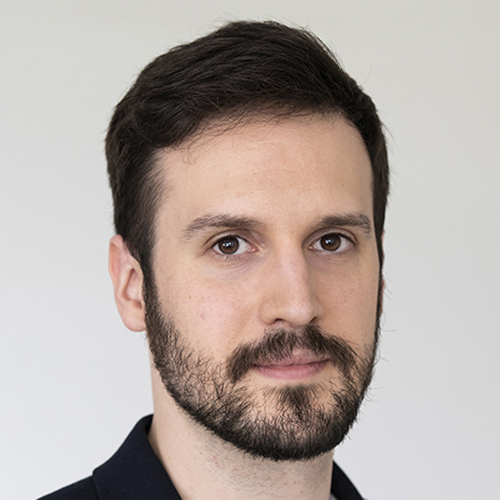
Giovanni Spagnolli
Giovanni Spagnolli earned a Master’s degree in Cellular and Molecular Biotechnology (110/110 Cum Laude) and a Ph.D. in Biomolecular Sciences (Best Ph.D. student, CIBIO 33rd Cycle) at the University of Trento. During his doctoral research, he worked on developing and validating the PPI-FIT technology by applying it to the cellular prion protein. This study led to the discovery of the first small molecule degrader acting by targeting a protein folding intermediate. Concurrently, he worked on applying enhanced sampling molecular dynamics simulation techniques to achieve atomic-level characterization of the prion propagation mechanism. His thesis work and additional contributions to different multidisciplinary projects were acknowledged in more than 10 peer-reviewed publications, including research articles, reviews, and a book chapter.
As CTO of Sibylla Biotech, Giovanni leads the R&D and pipeline activities of the company. He is also involved in the company fundraising and playeed a key role in the raise of the latest € 23M Series A round.
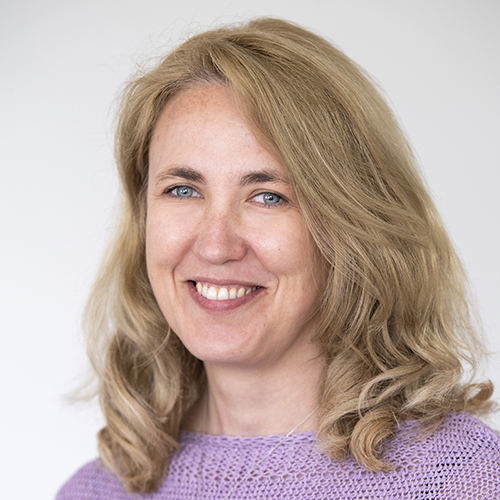
Tania Massignan
Dr. Massignan received a broad education in biochemistry and neurobiology, with specific expertise in various aspects of neurodegenerative disorders. Between 2005 and 2010, as a Ph.D. student in Neuroscience at The Open University of London (UK), she investigated the impact on cellular homeostasis of a mutant form of the cellular prion protein (PrPC). This work generated the first experimental evidence about the existence of a specific cytotoxic feedback loop initiated by the intracellular accumulation of mutant PrP molecules.
Between 2006 and 2007, as part of her Ph.D. training, Dr. Massignan visited the laboratory of Prof. David A. Harris at Washington University in St Louis, where she continued to study prion diseases by characterizing the neurotoxicity of another PrP mutant, called ΔCR, which causes neonatal lethality in transgenic mice. Her research identified a specific cytotoxic effect of the ΔCR protein and defined a completely novel cellular assay (DBCA) for studying the toxicity of mutant forms of PrP. In 2010, Dr. Massignan was recruited as a post-doctoral fellow at Boston University School of Medicine.
Her project employed the DBCA as a primary assay to carry out a large drug screening campaign aimed at identifying small molecules capable of suppressing mutant PrP toxicity. This work led to the identification of a number of candidate anti-prion compounds currently under investigation and development. For such an achievement, Dr. Massignan received the Bioeconomy Award 2014.
Since 2015, sponsored by fellowships from the Fondazione Veronesi and the Telethon Foundation, Dr. Massignan joined as a Senior Scientist at the Laboratory of Prions & Amyloids at the Department of CIBIO, University of Trento. Her current research covers a broad spectrum of topics related to prions and amyloids but maintains the ultimate objective of defining novel therapeutic strategies for neurodegenerative disorders.
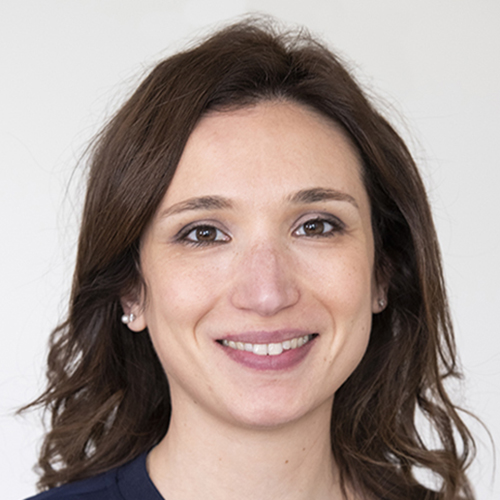
Serena Bonifati
Dr. Bonifati’s scientific expertise lies at the interface between cancer biology and virology. She completed her Ph.D. in 2014 at the German Cancer Research Center (DKFZ) in Heidelberg, Germany, where she worked on the development of novel anti-cancer strategies based on the oncolytic virus H-1PV. In 2015, she moved to the US to perform her post-doctoral training at the Ohio State University in Columbus.
In the past 5 years, her research has focused on elucidating the mechanisms of pathogenesis of retroviruses, particularly HIV-1 and HTLV-1. Her work contributed to the characterization of the molecular mechanisms by which the cellular restriction factor SAMHD1 controls innate immune responses to viral infections and inflammatory stimuli.
In her 8+ years of research experience in diverse therapeutic areas, including oncology, immunology, and virology, dr. Bonifati gained extensive expertise in various cellular and molecular biology techniques.
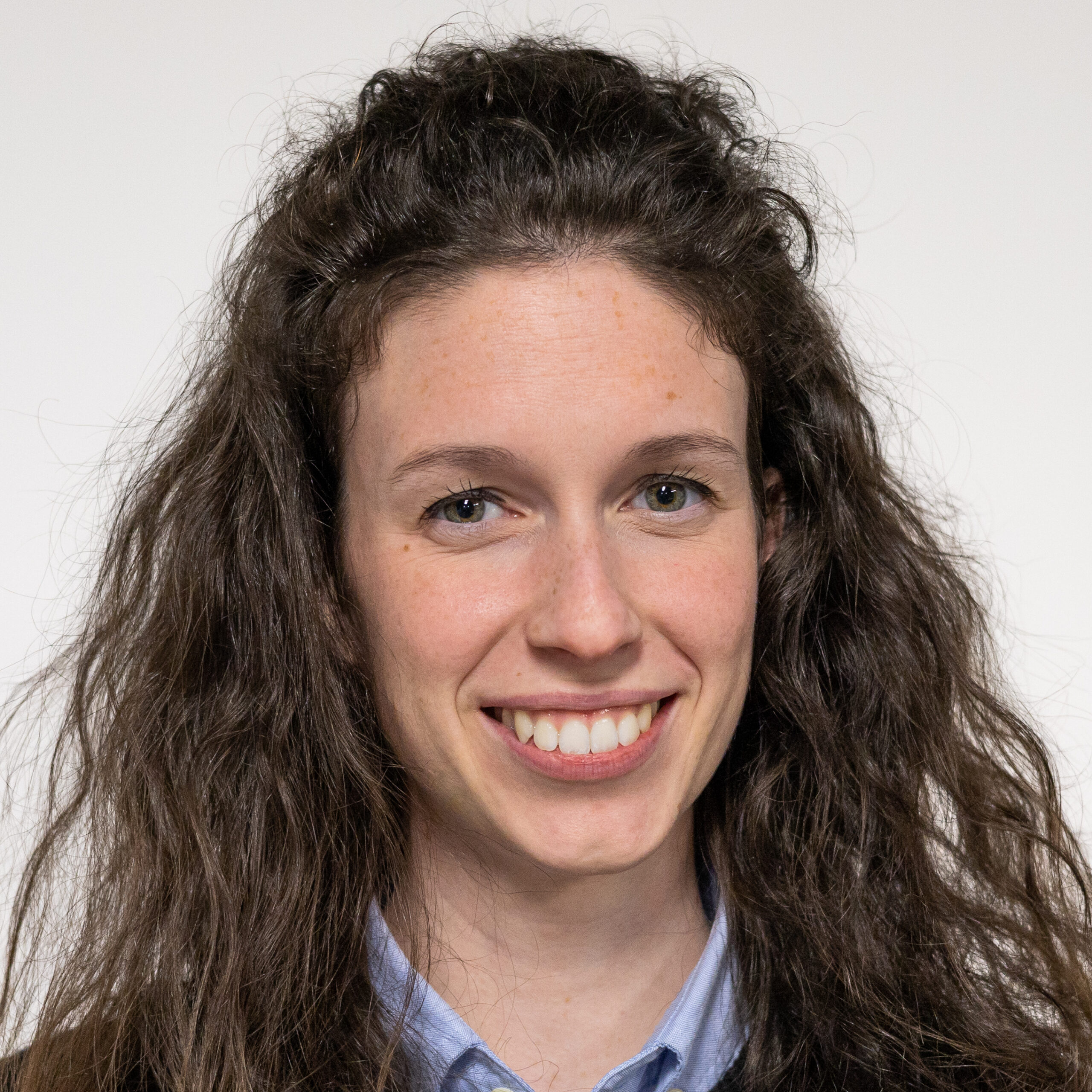
Laura Copat
Laura Copat earned a Bachelor of Science at the University of Trento and a Master of Science in Molecular and Medical Biotechnology at the University of Verona.
During her bachelor’s internship, Laura was involved in a project related to discovering compounds acting with the PPI-FIT mechanism of action. In particular, she worked on the synthesis, purification, characterization, and cell-based testing of small molecules inducing the degradation of the cellular prion protein. This study was conducted in a collaborative research project involving the Laboratory of Bioorganic Chemistry and the Dulbecco Telethon Laboratory of Prions and Amyloids at the University of Trento.
During her master’s thesis internship, Laura investigated the role of the folding pathway in the regulation of protein turnover. In particular, she studied the effect of post-translational modifications predicted to occur in non-native conformations.
Laura has, therefore, gained knowledge of molecular biology techniques and hands-on experience in organic and analytical chemistry.
At Sibylla, Laura is now focusing on automatizing and scaling up high-throughput screening assays.
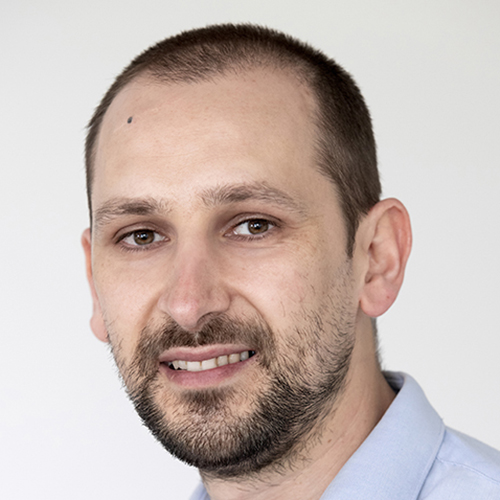
Andrea Astolfi
Andrea Astolfi received MSc degree in Pharmaceutical Biotechnologies (110/110 cum laude) in 2014 from University of Perugia where it was awarded as one of the best graduate students. In 2018, at the same University, he earned a PhD in Pharmaceutical Sciences. His PhD thesis work received the national award as the best PhD thesis in Medicinal Chemistry organized by Società Chimica Italiana (SCI) and the international Paul Ehrich MedChem Euro-PhD Network certificate for the excellence.
Along these years Andrea Astolfi acquired a strong experience in the application of computer-aided drug discovery (CADD) methodologies, both structure-based and ligand-based, spanning from protein structure analysis the design of virtual screening workflows.
This experience perfectly fit and integrate the multidisciplinary nature of the Sibylla Biotech S.R.L research pipeline.

Alberto Boldrini
Alberto Boldrini has a degree in Physics with a master in Quantitative and Computational Biology. His background combined with the interest in mathematics and computer science has allowed him to accumulate a wide experience in all the fields in which Sibylla Biotech focuses.
In particular, during his internship he tackled the protein folding problem employing molecular dynamics simulations and enanched sampling techniques at the University of Trento.
His strong experience in statistical mechanics, software development, data analysis and high performance computing makes him a key people in Sibylla multidisciplinary staff. He takes care of the development and innovation of our computational platform. He is also in charge of administering of the computing resources.
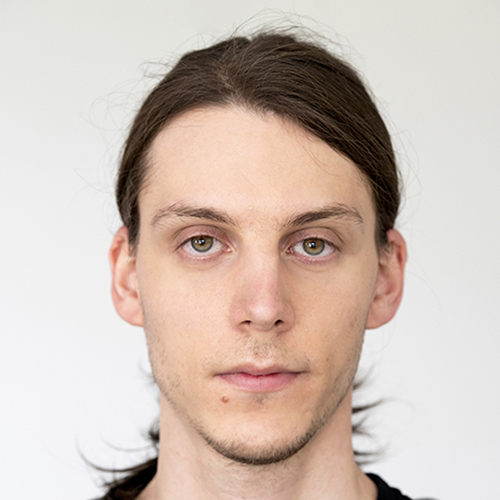
Luca Terruzzi
Luca Terruzzi graduated in Computer Science at the University of Trento, consolidating his knowledge about programming techniques and software design and development. To pursue his idea of exploring new areas in which to apply his expertise, he continued his education receiving a Master of Science degree in Quantitative and Computational Biology at the University of Trento, with particular focus on the field of biophysics.
These studies coupled with Luca’s passion gave him an interdisciplinary background in the fields of mathematics, physics, biology and computer science. He applied this knowledge during his internship and thesis work at the departments of Physics and Cellular, Computational and Integrative Biology (CIBIO), University of Trento. This experience allowed him to deepen his understanding of advanced Molecular Dynamics techniques and data analysis tools, applied to the protein folding problem.
The multidisciplinary nature of his education with a strong computer science background make him a perfect choice for the cross-disciplinary research staff at Sibylla Biotech S.p.A.
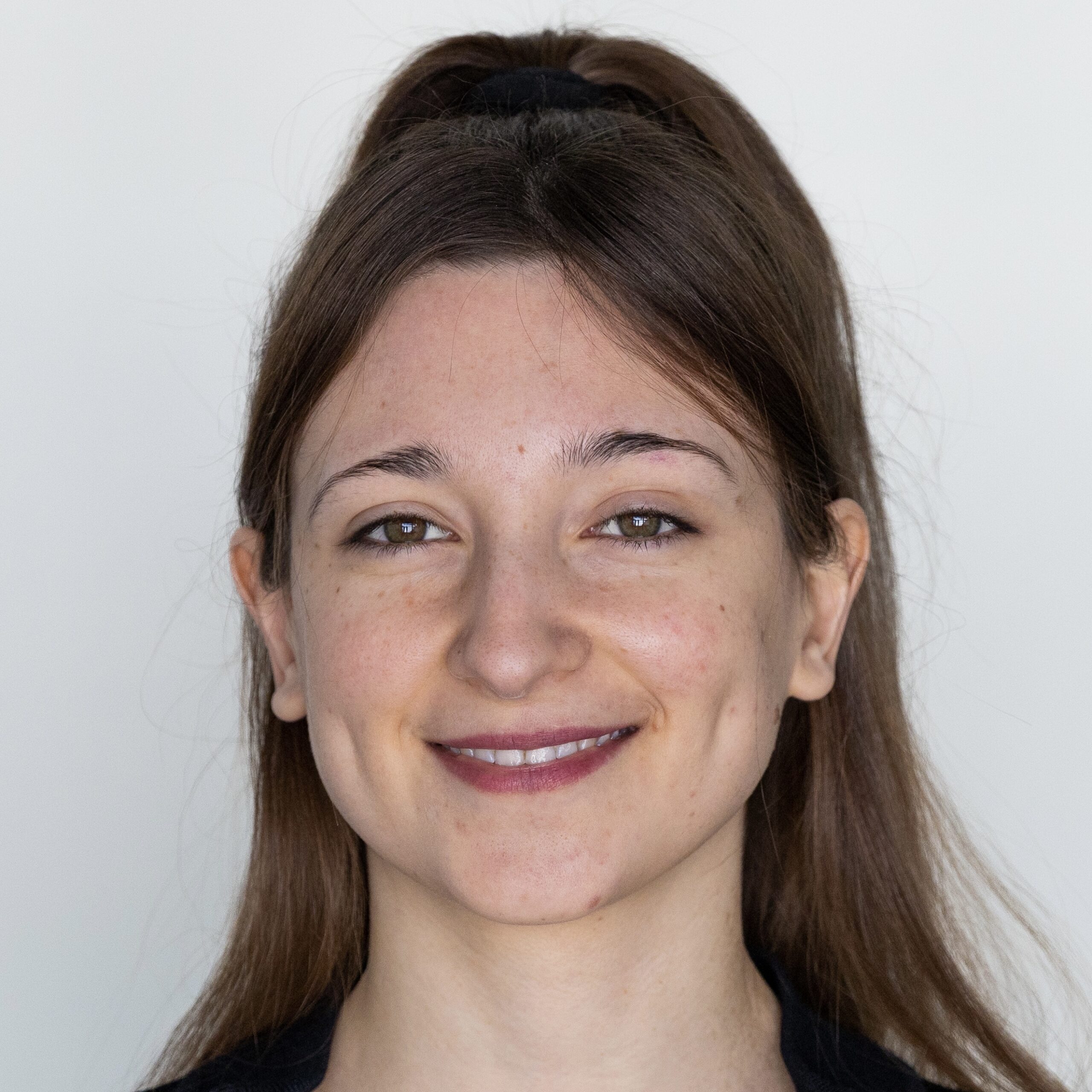
Enrica Colasurdo
Enrica Colasurdo graduated in Physics at the University of Trento. Her passion for computer science and data analysis led her to approach computational studies in the field of biophysics during the Master in Quantitative and Computational Biology, gaining experience with molecular dynamics and enhanced sampling techniques applied to the protein folding problem.
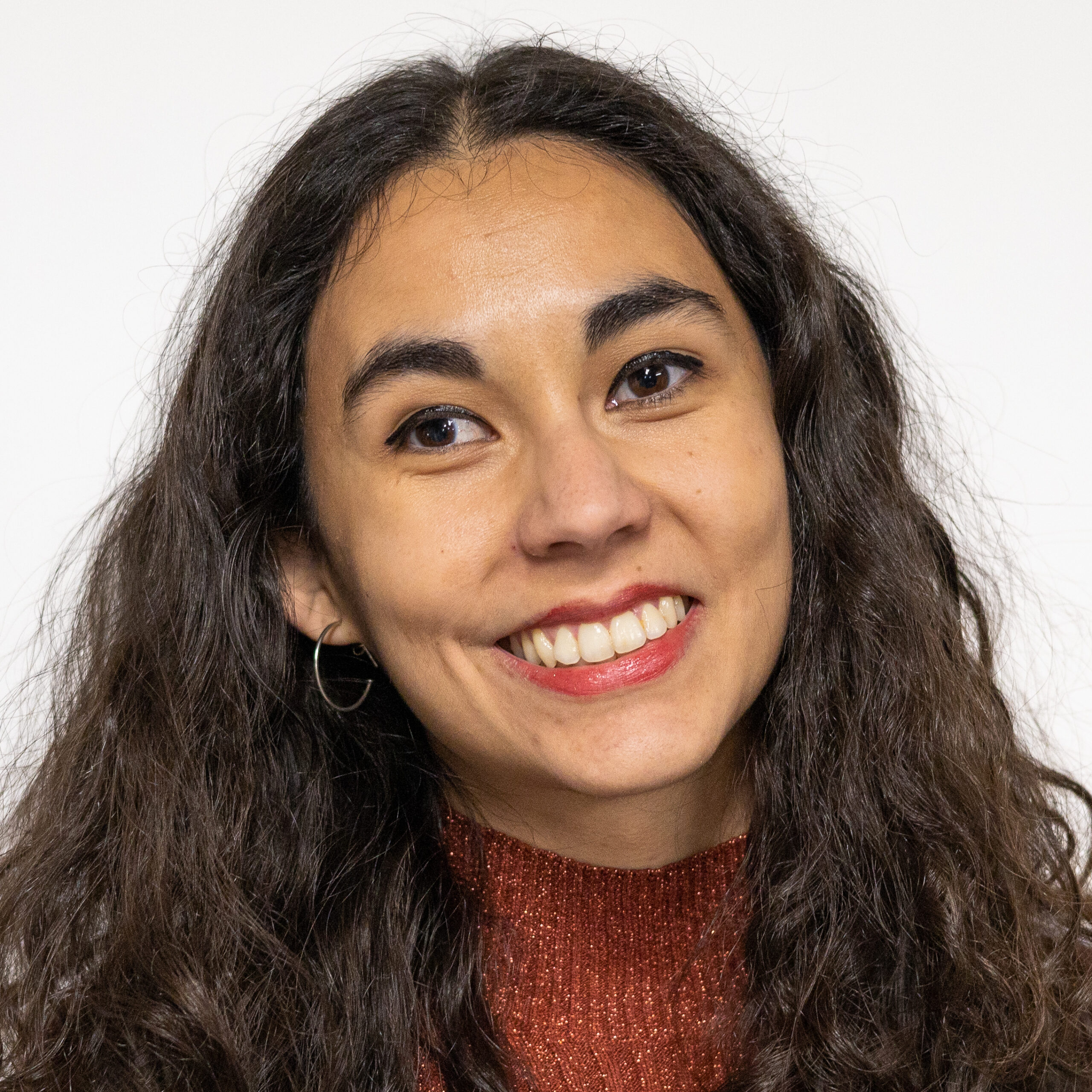
Cristina Risueño Fernández
Cristina Risueño holds a bachelor’s degree in Biotechnology (Universidad Europea, Spain, 2015), a master’s degree in Industrial Biotechnology (Universidad Complutense, Spain, 2017), and a PhD in Molecular Biology and Biomedicine (Universidad del Pais Vasco, Spain, 2021).
During her doctoral studies, she aimed at understanding the biophysical mechanisms that make proteins respond to changes in pH. Her acquired experience in molecular dynamics simulations and other biophysical techniques (i.e. protein crystallography), combined with her background in biotechnology and biotechnological processes, makes her a good fit for the Sibylla’s Biotech team. Her multidisciplinary experience allows her to provide a holistic view about the challenges of developing new therapies implementing Sibylla’s technology.
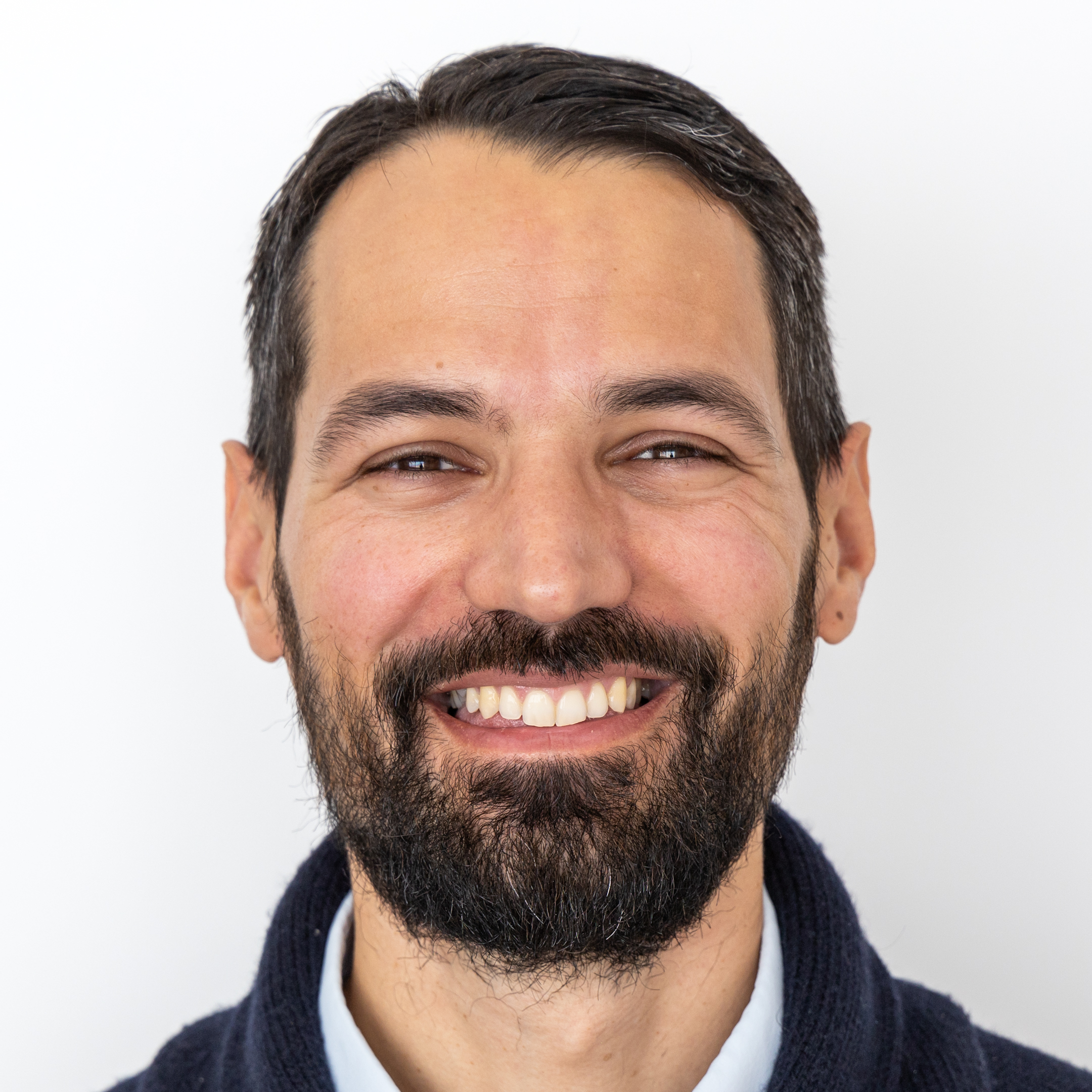
Cassiano Langini
During his Ph.D., he applied molecular dynamics simulations and enhanced sampling methods to study the kinetics of binding of histone tails by several members of the bromodomain protein family. In parallel, he contributed to developing the docking software SEED, including assessing its screening power on multiple targets. After graduation in 2021, he kept working in the same lab as a postdoc, with a two-fold focus on analyzing binding simulations and applying new technologies to improve the lab’s virtual screening workflow, including software integration and AI.
His strong academic background and multidisciplinary approach are now playing a crucial role in improving Sibylla’s computational platform.
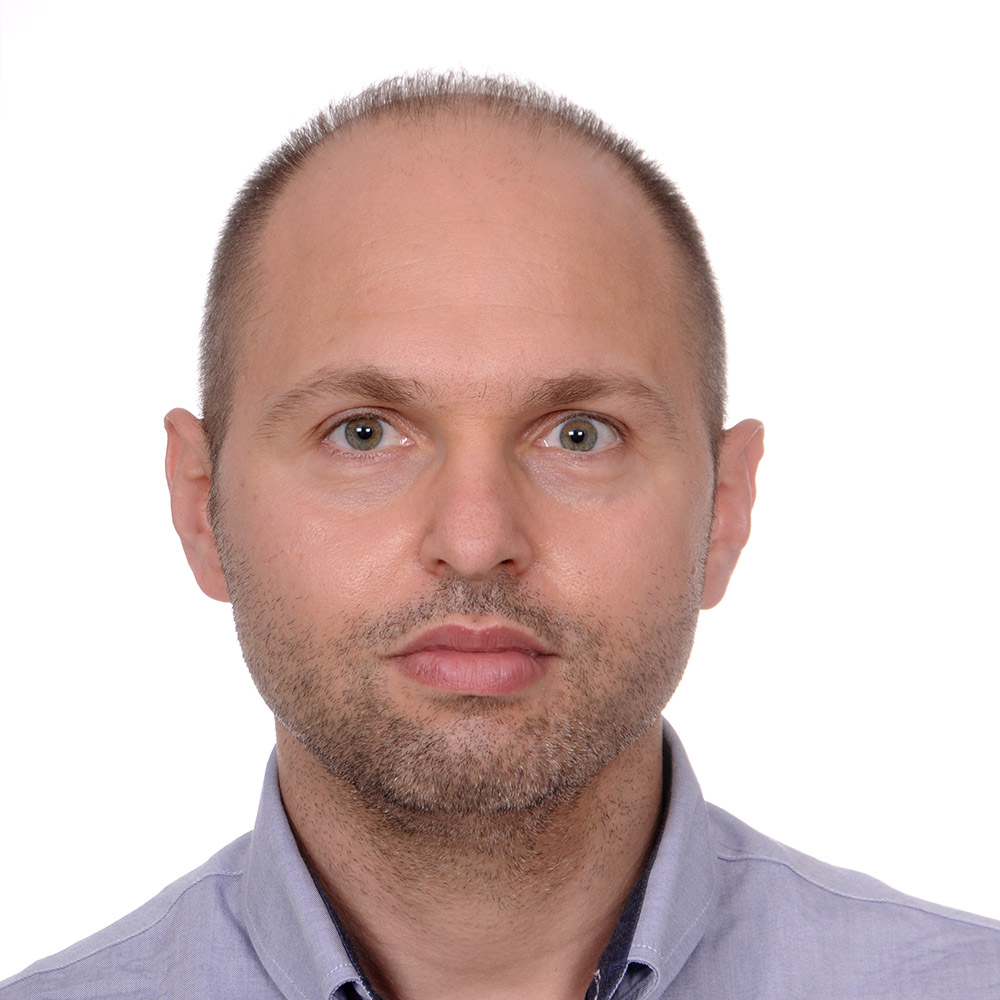
Alexandros Patsilinakos
Alexandros Patsilinakos holds a master’s degree in Medicinal Chemistry and Pharmaceutical Technology and a Ph.D. in Pharmaceutical Sciences at Sapienza – University of Rome. His background encompasses ligand-based and structure-based drug design, ab initio quantum chemistry and machine learning.
During his 10+ years of experience in academia and the pharmaceutical industry, Alexandros has developed a deep knowledge of molecular modeling, cheminformatics, and bioinformatics applied to drug discovery. In addition, he also has hands-on experience in entrepreneurship, with a past as company CTO.
His work is focused on developing and applying computational methods for predicting biological and physicochemical properties, the design of chemical libraries, the exploration of the chemical space, ADMET in silico models and AI-enabled workflows to accelerate hit identification and lead optimization.
Alexandros holds a rich academic record, with 20+ peer-reviewed publications and numerous attendances to international conferences, where he strengthened a network of academic and industry collaborations.

Leda Bencheva
Leda Bencheva obtained an MSc in Medicinal Chemistry and Pharmaceutical Technology followed by a PhD in “Design, synthesis and characterization of bioactive molecules” from the University of Modena and Reggio Emilia in Italy. During her 15 years of career as both synthetic and medicinal chemist, she gained an interdisciplinary background and detailed on-the-job knowledge of the modern drug discovery process, a deep understanding of biological aspects and DMPK.
In addition, she also acquired hands-on experience in patent writing, Markush structure design and patent busting.
Leda has made fundamental contributions to 6 patents, and her thorough work resulted in several publications.
Her work is focused on the early phase drug discovery process, PK profiling, PK/PD analysis and formulation development.
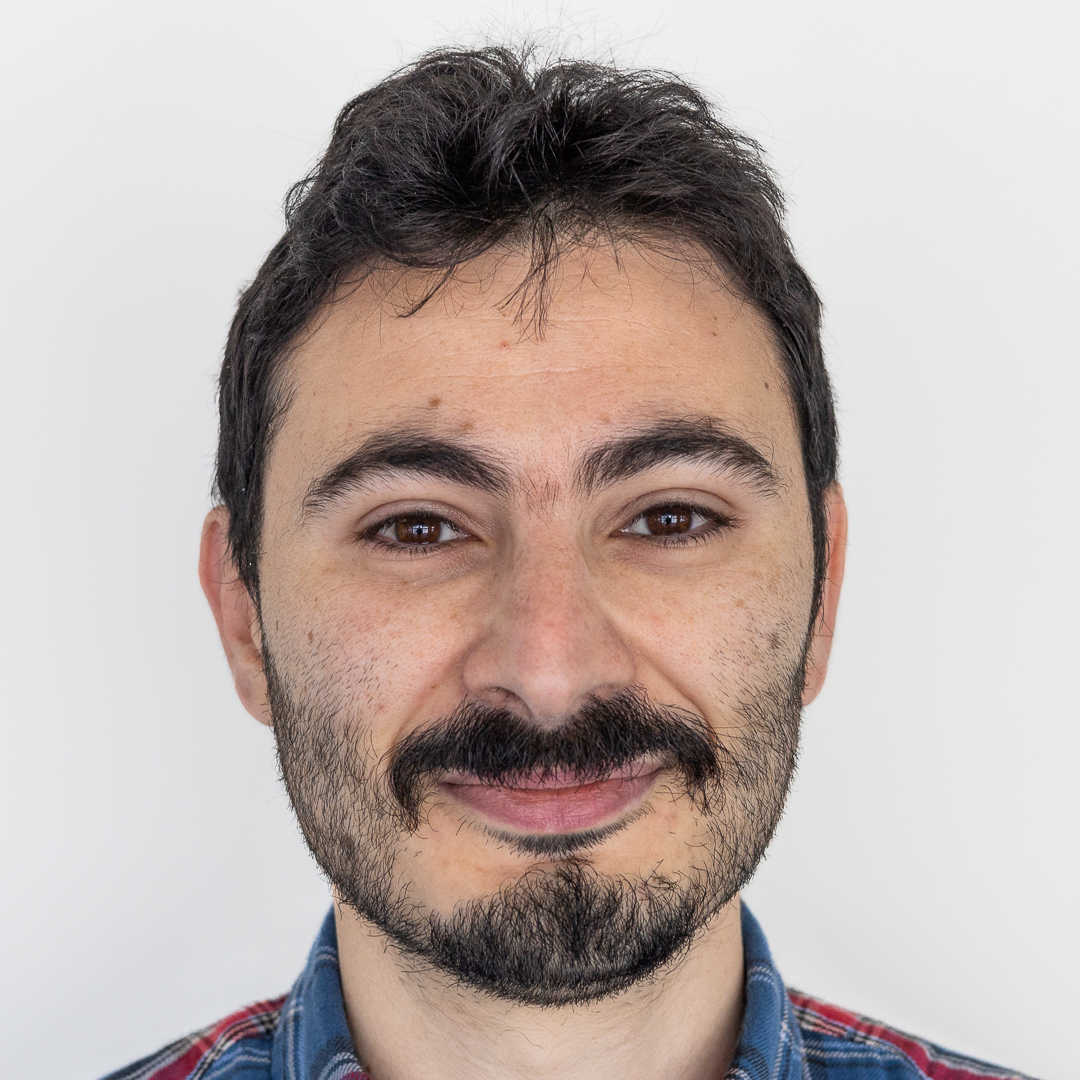
Carmine Varricchio
Carmine Varricchio earned a Master’s degree in Pharmaceutical Chemistry and Technology from the University of Siena. Soon after graduating, he joined the IRBM medicinal chemistry team, where he worked on several drug discovery projects, ranging from hit identification to lead optimization. In 2016, he successfully applied for a multidisciplinary PhD program at Cardiff University. During his doctoral research, he designed, synthesized, and evaluated novel compounds capable of rescuing cells suffering from mitochondrial dysfunctions. After completing his PhD, he conducted post-doctoral research in Professor Andrea Brancale’s group, focusing on in silico design of new small molecules with potential biological activities, including anticancer, antiviral, and anti-neurodegenerative agents. He has authored 20+ peer-reviewed papers and participated in several international scientific conferences. In 2019, he received the ISSF3 Consolidator Award, a grant funded by the Wellcome Trust to support the independent careers of early-career researchers.
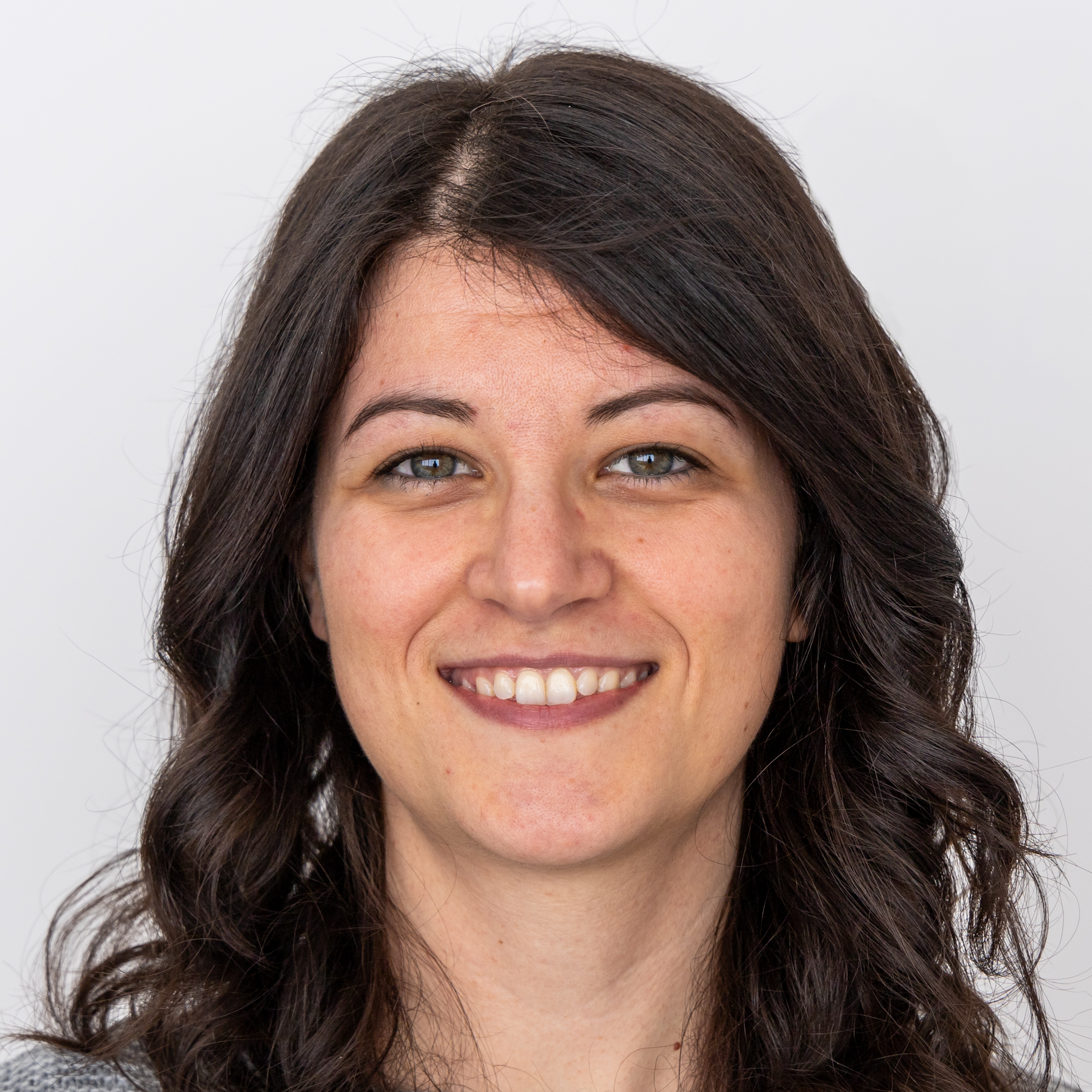
Fabiana Russo
Fabiana Russo earned a Master’s degree in Medicinal Chemistry and Pharmaceutical Technology, and she is a PhD candidate in Clinical and Experimental Medicine at the University of Modena and Reggio Emilia.
During her Ph.D. research and participation in industrial research and Experimental Development projects, she worked on the development of stereoselective synthetic strategies and analytical methods based on High-Performance Liquid Chromatography coupled with High-Resolution Mass Spectrometry for a chemical-pharmaceutical characterization of active ingredients of Cannabis Sativa L. extracts and of new psychotropic substances.
As a junior scientist in the Sibylla medicinal chemistry team, she supports drug discovery activities by patent drafting, compound management, and synthetic pathway design.
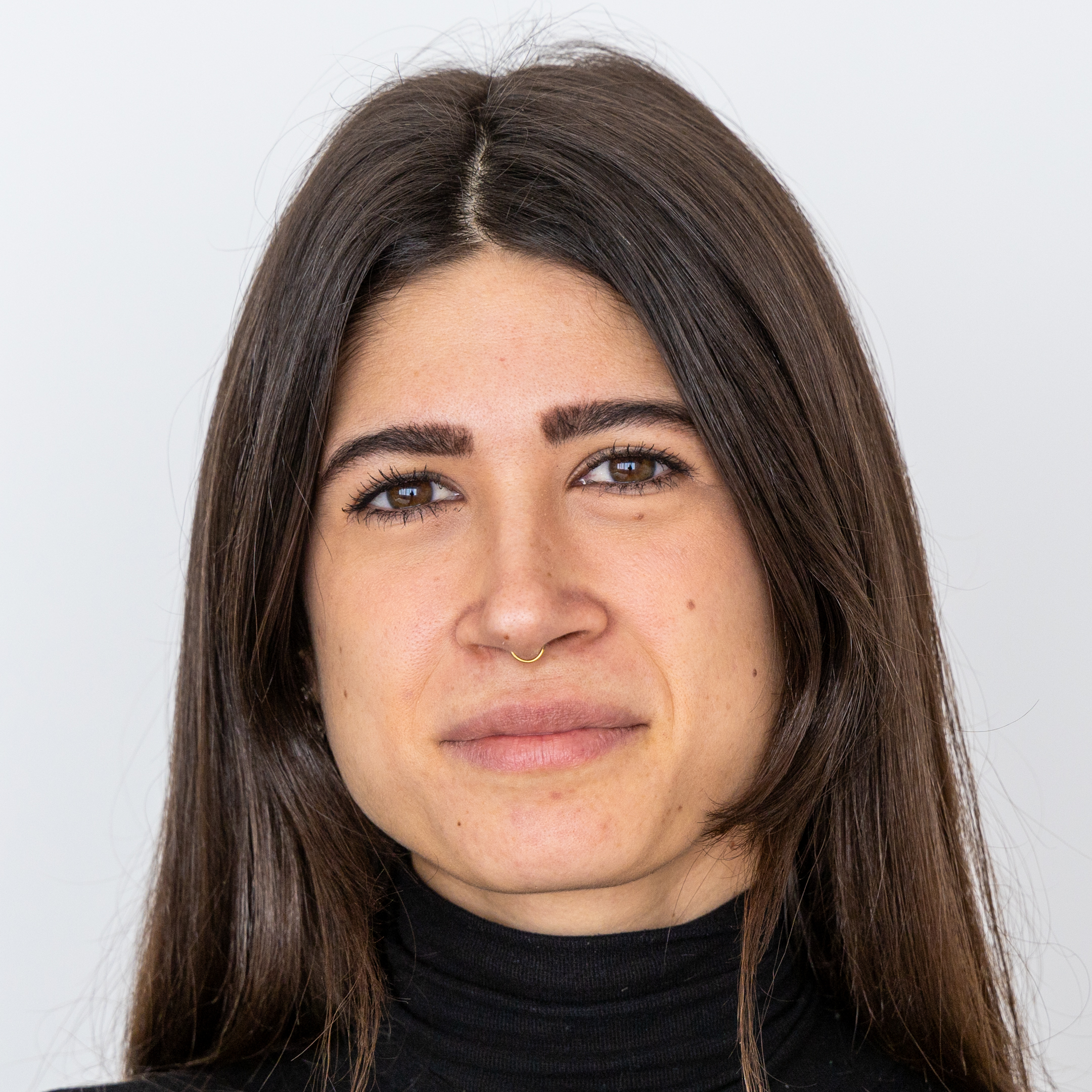
Irina Stefanelli
Irina earned an M.Sc. in Chemistry and Pharmaceutical Technology from the University of Naples Federico II in 2019. During her master’s thesis, she approached medicinal chemistry by designing and synthesizing selective hexapeptide ligands for the tumor-promoting TRF2 protein.
In 2022, Irina earned a Ph.D. in Pharmaceutical Science at the University of Naples Federico II. She collaborated with Dompè Pharmaceutical S.p.A. to discover promising antivirals by exploring a structure-based approach through the innovative Exsclate platform. In parallel, she explored peptide chemistry to synthesize novel peptidomimetics with potent broad-spectrum activity against different human Coronaviruses.
For six months, Irina carried out research at the Institute of Cancer Research in London, an opportunity to interface with anticancer research, focusing on designing and synthesizing small-molecule therapeutics against pediatric brain tumors.
During these years, Irina gained competencies in medicinal chemistry by exploring different drug discovery approaches, besides becoming confident with cutting-edge synthetic strategies.
Irina contributes to Sibylla’s drug discovery activities by supporting the design of synthetic pathways and by dealing with compound management workflows.

Emilia Cassese
Emilia graduated in Chemistry and Pharmaceutical Technology at the University of Naples Federico II in 2021 with an experimental thesis in Medicinal Chemistry titled: “Design and synthesis of novel potent SARS-CoV-2 3CLpro inhibitors“ published in Eur. J. Med. Chem. (110/110 cum laude).
In September 2021 Emilia won a fellowship founded by “Fondazione Ricerca Fibrosi Cistica” for the identification of HDAC6 inhibitors to treat Cystic Fibrosis. The work has been published in two international journals. In January 2022, she won a second fellowship founded by “Ospedale San Raffaele” for the discovery of peptidomimetic inhibitors with potent broad-spectrum activity against different human Coronaviruses.
In November 2022, Emilia started her industrial Ph.D. program in Pharmaceutical Sciences at the University of Naples “Federico II” in collaboration with Sibylla Biotech working on the discovery of new antibacterial agents with a novel mechanism of action based on the PPI-FIT approach against Superbugs to fight the antibiotic resistance. During her ongoing doctoral research, Emilia is acquiring skills in computational chemistry and molecular modeling to be integrated with experimental methodologies, to verify the in silico predictions. Emilia has a great passion for Medicinal Chemistry, Organic Synthesis, and Drug Design.
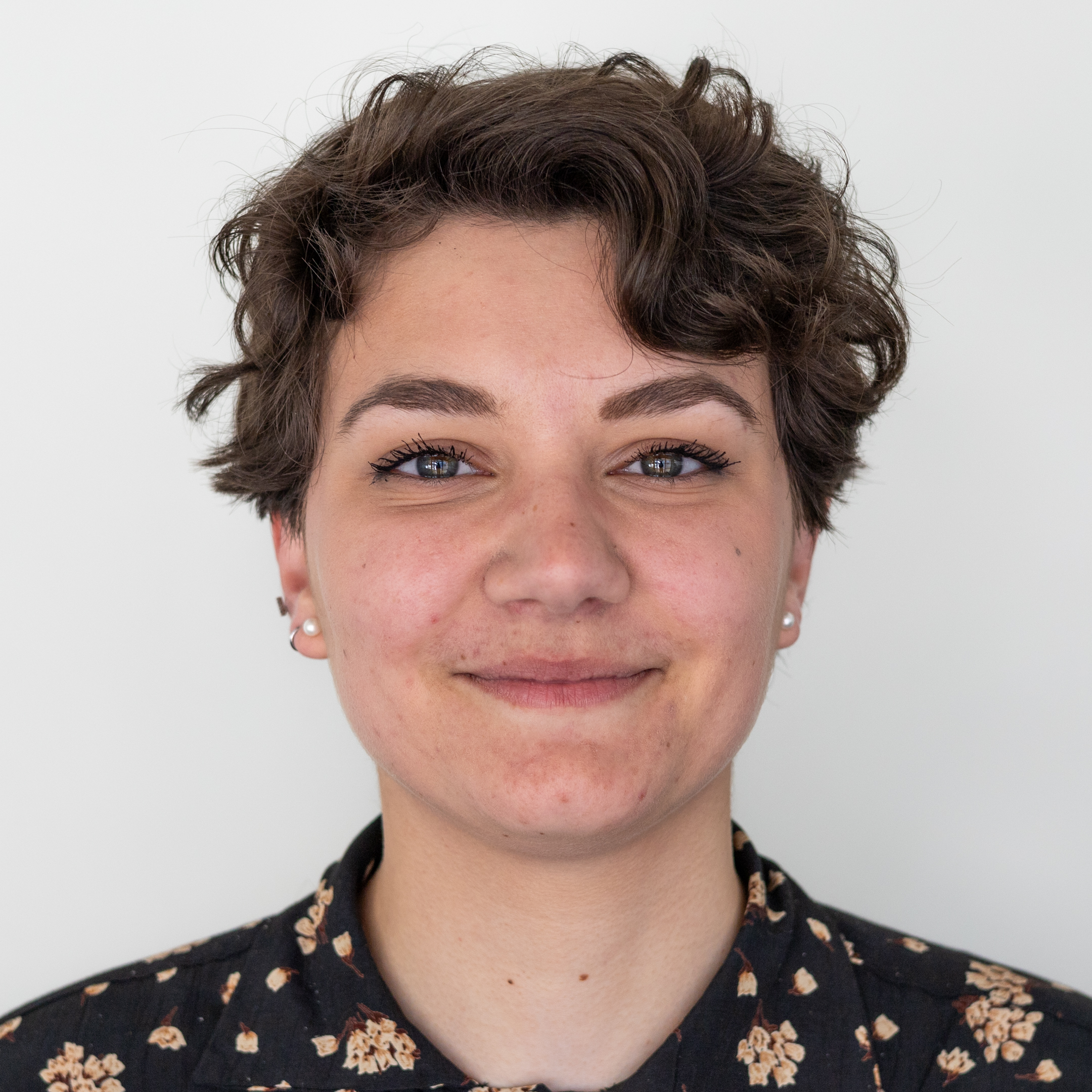
Erika Primavera
Erika Primavera earned a Master’s degree in Pharmaceutical Chemistry and Technology (score 110/110 cum laude) from the University of Perugia in 2022. Throughout her academic journey, Erika demonstrated an unwavering passion for the pharmaceutical field, showcasing her dedication through internships in both an organic synthesis laboratory and a hospital. Later on, fuelled by her fervour for innovation and technology, Erika directed her academic focus towards the intersection of computer science and medicinal chemistry, culminating in her experimental thesis in the realm of Computer Aided Drug Discovery (CADD).
Since November 2022, she has embarked on a new chapter as a PhD student in Pharmaceutical Sciences (curriculum Early Phase Drug Discovery) at the University of Perugia, with the support of a scholarship co-financed by the National Recovery and Resilience Plan (NRRP, funded by European Union) and the company Sibylla Biotech. Indeed, her doctoral project is a collaborative venture between the University of Perugia and Sibylla Biotech. The primary objective of this joint effort is the identification of folding interfering degraders (FIDs) targeting a mutated form of the AKT1 protein, which is implicated in rare pediatric disease known as Proteus Syndrome. Over the span of three years, Erika is set to immerse herself in an enriching experience, working closely with Sibylla Biotech to expand and deepen her expertise in cutting-edge drug discovery technologies.
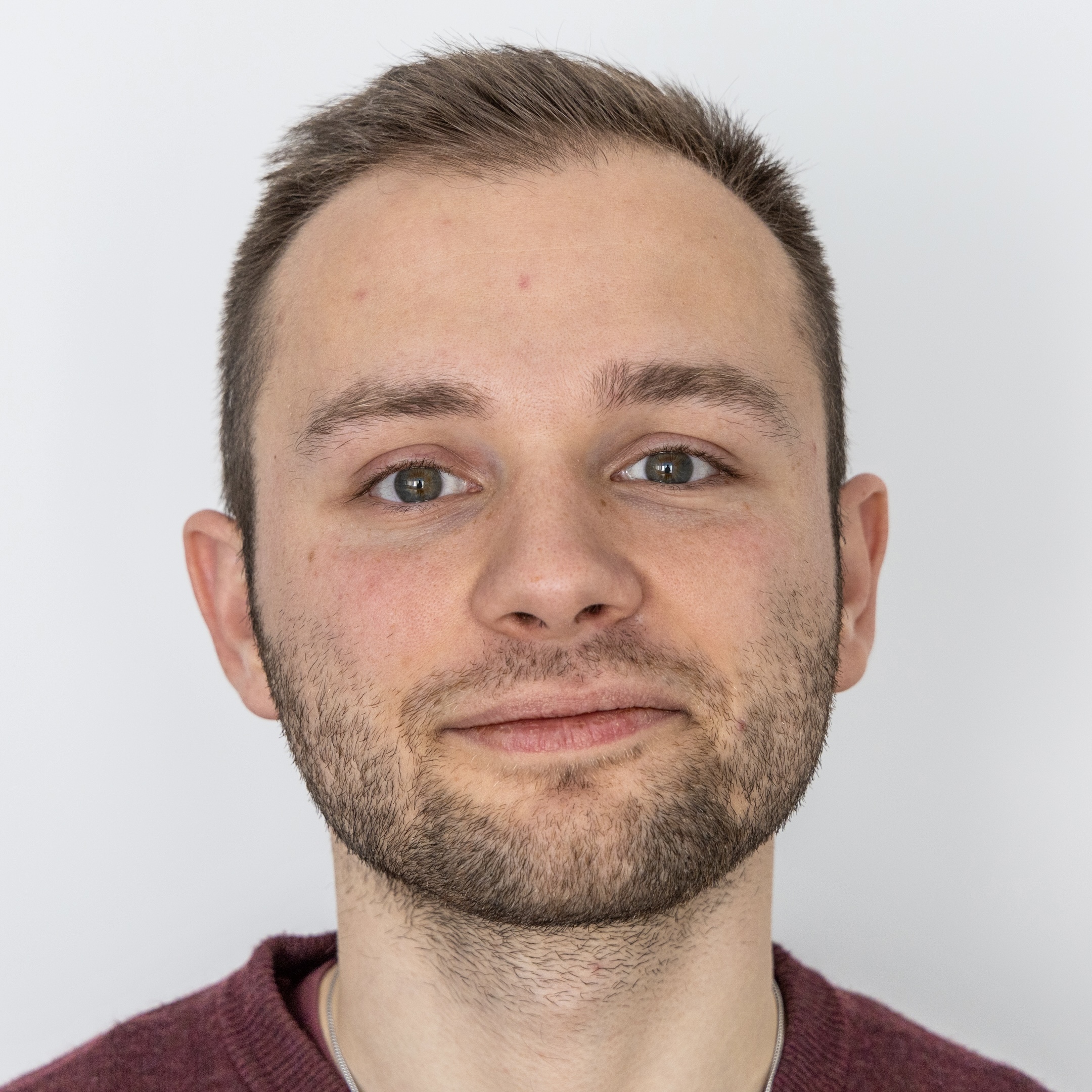
Lars Meuser
Lars Meuser earned a Master’s degree in Interdisciplinary Sciences (Physics and Physical Chemistry) from ETH Zürich. In his studies, he focused on theoretical physics with an emphasis on quantum mechanical simulation techniques, statistical physics, and quantum computing.
He did his Master’s thesis at the University of Cambridge, where he conducted simulations and studies on chaotic quantum mechanical systems. During a research project at IBM Research, he gained practical experience in quantum computing for drug development.
He is currently pursuing his Ph.D. at the University of Milano-Bicocca together with Sibylla Biotech. His project aims to integrate quantum computing into the drug discovery pipeline. With expertise in simulation techniques, quantum computing, and a background in chemistry, he is well-equipped for the challenging task of preparing the company for a potential quantum era.
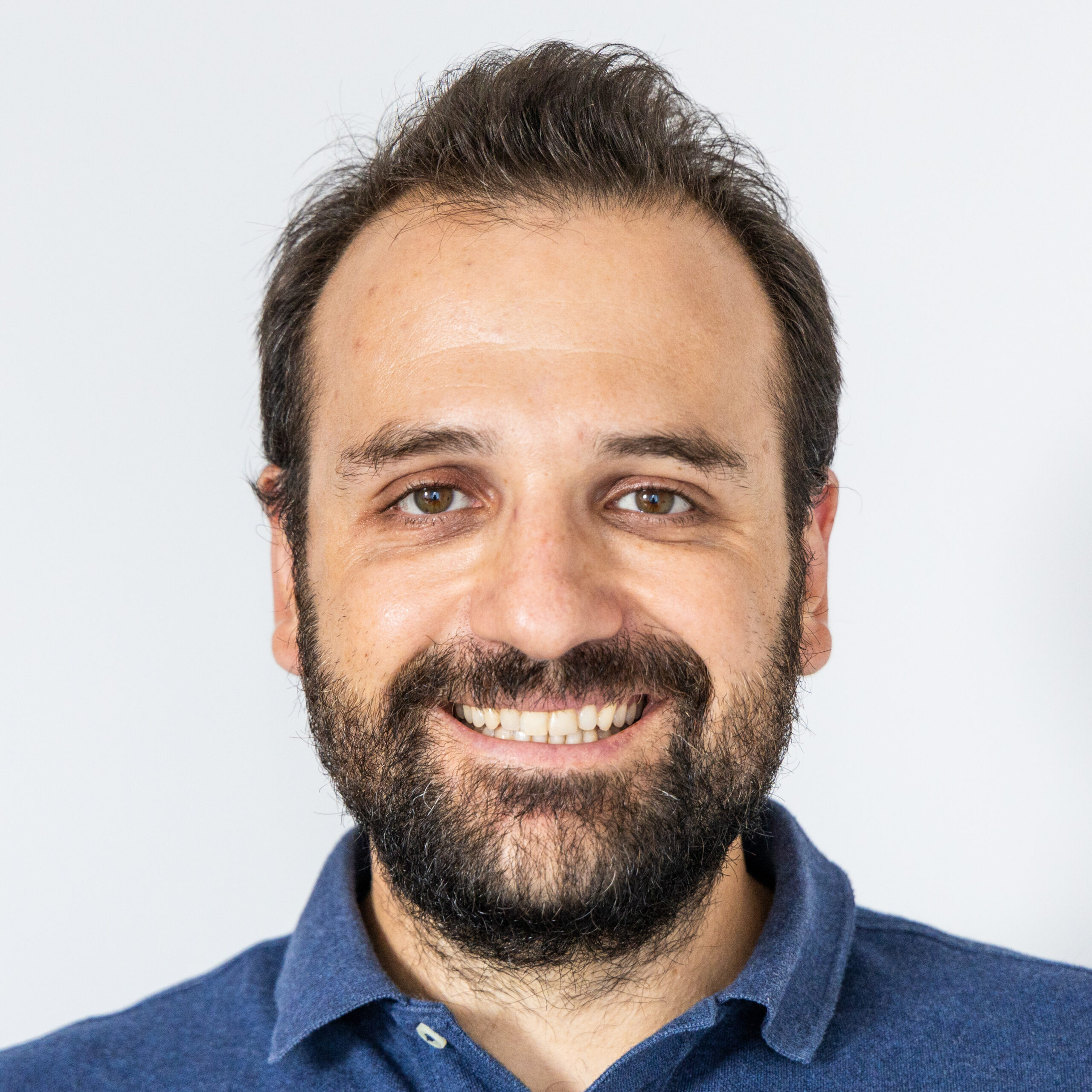
Simone Lanfredini
Simone Lanfredini holds a Master’s degree in Biotechnology Applied to Human and Animal Health from the University of Turin. He earned his PhD in Clinical and Experimental Medicine at the Università del Piemonte Orientale “Amedeo Avogadro,” where he established international collaborations with the European Cancer Stem Cell Institute (ESCRI) during his doctoral program. Subsequently, as a Postdoc in the Professor Girish Patel Lab at ESCRI, his research focused on skin cancer and cancer stem cells, both in-vitro and in-vivo.
In 2017, Simone Lanfredini was recruited as a senior postdoc by Professor Eric O’Neill at the University of Oxford’s Department of Oncology. There, he established the Pancreatic Orthotopic Preclinical mouse model and obtained UK certification as a small animal surgery trainer. His research was dedicated to modulate the pancreatic tumour microenvironment through the synergy of MRI-guided radiotherapy and immunotherapies in preclinical contexts.
His research led to 10+ peer-reviewed articles in high relevance journals such as Gastroenterology and Journal of Clinical Oncology. After more than 7 years of international academic research was recruited in 2021 as Principal Scientist by Novartis to join the Preclinical Pharmacology group at the Radioligand Therapy Platform, based in Ivrea (TO-Italy). He closely collaborated with external Contract Research Organizations (CROs) as a Preclinical Study Monitor.
His work is focused on early phase drug discovery closely monitoring in-vivo studies in collaboration with external CRO.
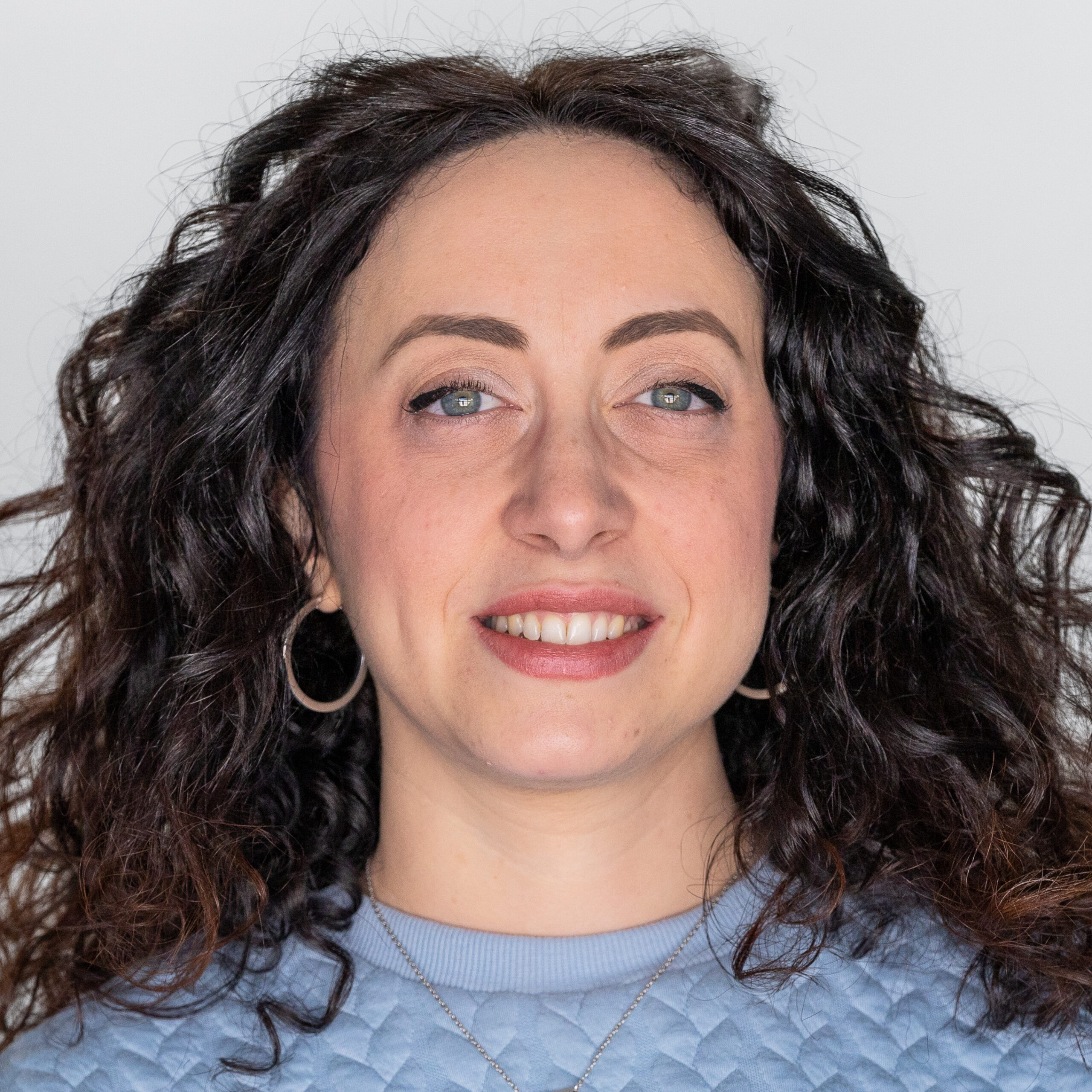
Roberta Gioia
Dr. Gioia earned a master’s degree in Biology for Molecular, Cellular and Pathophysiological Research at Roma Tre University. She studied adult hippocampal neurogenesis, regulation of cell cycle, and neuronal differentiation in cellular and mouse models as a master student and as an intern at the Institute of Cell Biology and Neurobiology (IBCN) of the National Research Council (CRN) of Rome. In 2021, she completed her Ph.D. in “Cell and Developmental Biology” at Sapienza University of Rome. Between 2018 and 2021, she investigated neural stem cell properties and neurogenesis in a mice model carrying an autism-associated mutation, this study led to her fifth peer-reviewed publication. In 2021, she moved to perform her post-doctoral training at the Department of CIBIO, University of Trento. Her research has focused on elucidating the physiological role and the functional characterization of the protein Negr1, linked to neuropsychiatric diseases. During her 7+ years of experience, dr. Gioia gained expertise in various molecular biology and immunofluorescence techniques but also obtained extensive knowledge of cellular biology and in vivo modelling.
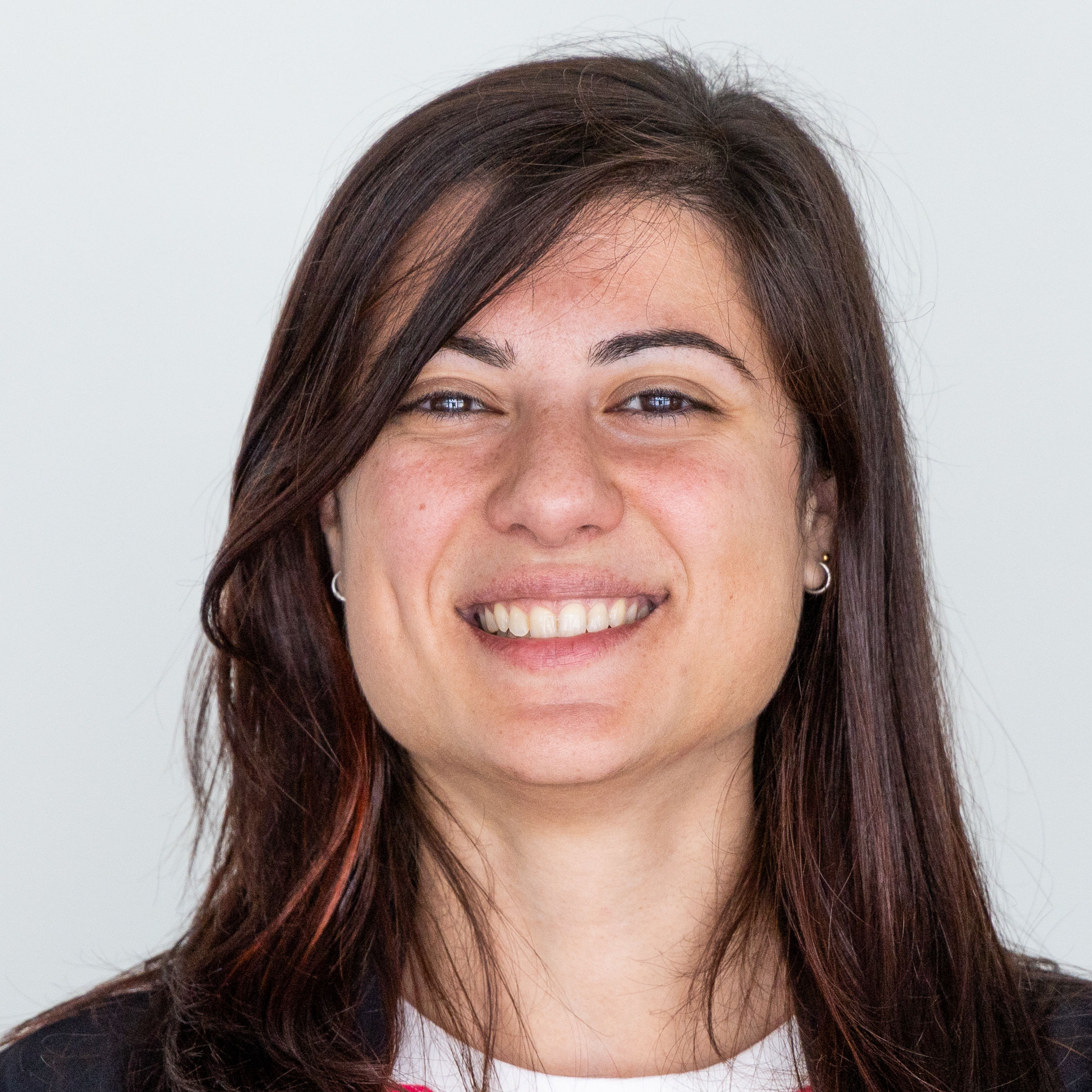
Clorinda Bello
Clorinda earned her Master of Science degree in Biology from Milano-Bicocca University. During her internship, she approached the neurobiology field by studying the functional properties of human-induced Neural Stem Cells derived from patients with neurodevelopmental disorders.
The following year she joined the Revert Onlus non-profit association as a research assistant. Here, she focused her activity on pre-clinical analysis aimed at characterizing human Neural Stem Cell lines suitable for therapeutic applications.
Subsequently, for a brief period, Clorinda lent her expertise to the Cell Processing Lab of the Immunohematology and Transfusion Unit at San Gerardo Hospital where her role was to process and cryopreserve Hematopoietic stem cells products for human transplants.
Later on, she was determined to reapproach the research field and her journey took her to the Institute of Experimental Neurology at San Raffaele Hospital, where she contributed to investigate pharmacological treatments that could reduce chronic inflammatory processes in central nervous system (CNS)-related diseases.
Throughout her educational and professional experience, she honed a diverse set of skills in cell and molecular biology and mouse modelling.
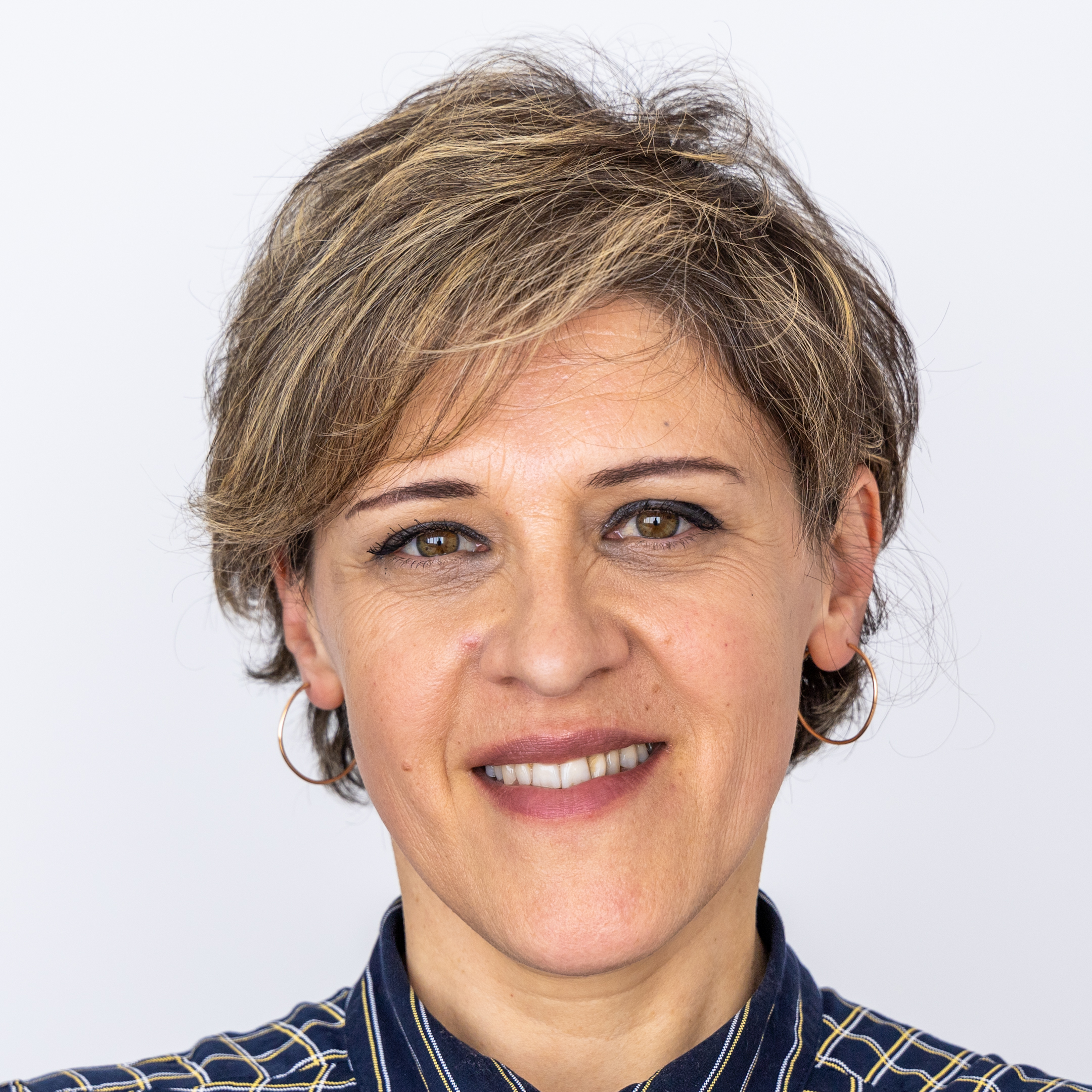
Zhasmine Mirzoyan
Zhasmine Mirzoyan, born and raised in Armenia, embarked on her academic journey with a solid foundation in biology. She earned a Master’s degree from Ben-Gurion University of the Negev, Israel, and obtained her PhD in Natural Sciences from the University of Ulm, Germany, where her research focused on the role of the Iroquois complex in Drosophila heart development.
During her postdoctoral research at the University of Milan and the University of Trento in Italy, Zhasmine explored metabolic disorders associated with obesity, including insulin resistance and adipose tissue inflammation using a novel Drosophila model.
With over a decade of experience, Zhasmine has honed her expertise in molecular biology techniques, developmental biology, and genetics. Alongside her research, she is actively engaged in teaching and mentorship.

Giulia Frapporti
Dr. Frapporti got her five-year degree in Pharmaceutical Chemistry and Technology at University of Ferrara in July 2016. To elaborate her thesis, she joined the Institute of Neurodegenerative Diseases (IMN) in Bordeaux, where she conducted research on the specific role of striatal Dopamine receptors D1 in spontaneous locomotion. During this period, she significantly increased her background knowledge on neurodegenerative diseases and behavioral dysfunctions. After graduation, she enrolled in the Neuromedicine group at the Institute of Biomedicine (Eurac Research in Bolzano) as a junior scientific collaborator with research focused on familial Parkinson’s disease linked to LRRK2 and alpha-synuclein. In 2023 she completed her Ph.D. in Biomolecular Science at the Department of CIBIO, University of Trento, working on a drug-like compound that stimulates autophagy. Between 2018 and 2023, as a PhD student, she was engaged in improving the pro-autophagic activity of a subset of Trehalose- derivatives, which yielded three publications. During her 6+ years of experience, Dr. Frapporti acquired competencies in planning and setting up in vivo and in vitro experiments and gained expertise in different molecular biology and immunofluorescence techniques.
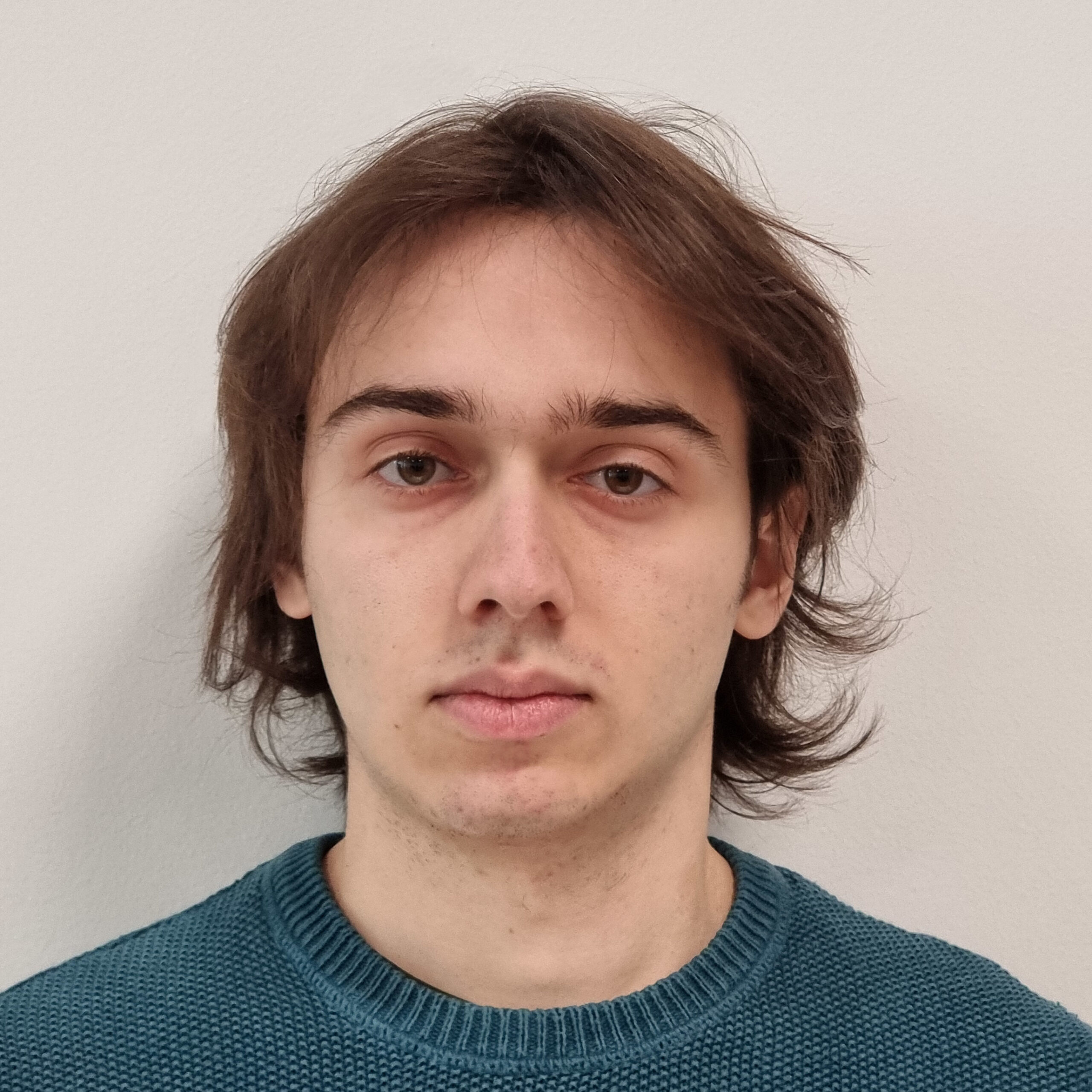
Dino Gasparotto
Dino holds a Master of Science in Molecular and Cellular Biotechnology from the University of Trento, which he obtained in 2022. During his undergraduate internship, Dino was deeply engaged in a project aimed at identifying compounds operating via the PPI-FIT mechanism, concentrating on the optimization of synthesis, purification, and evaluation through cell-based testing of small molecules to induce the degradation of cellular prion proteins. Thriving on challenges, throughout his master’s thesis internship, Dino delved into a comprehensive bioinformatic study, analyzing the significance of distinct post-translational modification sites within the human proteome, unraveling potential sites that could be impossible to modify in their native protein structure.
Currently pursuing his Doctorate Program at the University of Trento, co-financed by Sibylla Biotech S.p.A., Dino’s research endeavors revolve around developing a fluorescent assay that employs bimolecular fluorescence complementation within a high-content screening framework. His focus lies in targeting the intrinsically disordered protein alpha-synuclein, which is notorious for its misfolding and aggregation in Parkinson’s Disease.
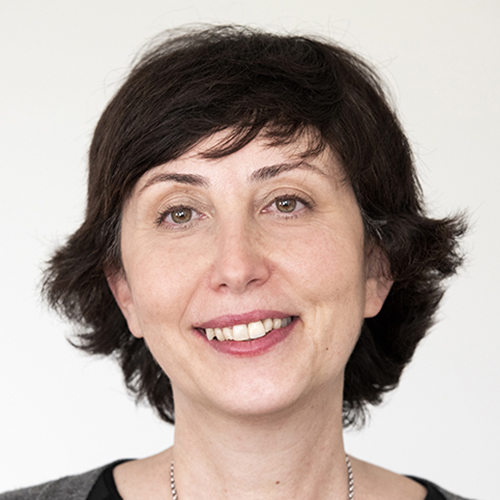
Maria Letizia Barreca
Prof. Barreca has 25-years of experience in the field of medicinal chemistry and drug discovery, and her main topics include infectious, neurodegenerative, and inflammatory diseases, and more recently cancer. She started her career at the University of Messina, where she founded a research laboratory in the field of computational chemistry applied to drug discovery. In 2000−2001 Prof. Barreca was Visiting Scientist at the University of Houston and in 2007 she moved to the Department of Pharmaceutical Sciences of University of Perugia, where she set up and led the I2D Lab (In silico Drug Discovery Laboratory) and is now Associate Professor.
She has successfully collaborated on different multidisciplinary national and international projects where she made a crucial contribution to the rational identification of small molecules possessing the desired biological activity. Prof. Barreca has received awards and acknowledgments for her scientific activity, including the prestigious “Best Young Researcher in Medicinal Chemistry” by the Italian Chemical Society (Farmindustria Prize). She is also a medchem consultant for two global healthcare companies (this consultancy is privileged and confidential)
Prof. Barreca has identified the bioactive small molecules which validated the innovative drug discovery protocol exploited by Sibylla Biotech S.R.L., which she co-founded in 2017.
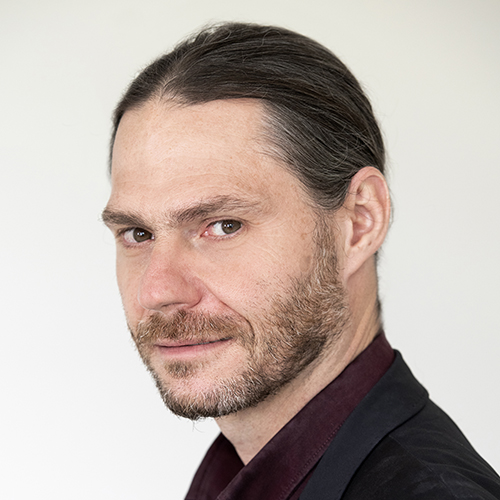
Pietro Faccioli
Pietro Faccioli received his PhD in physics from Stony Brook University (USA) with a thesis in theoretical subnuclear physics. Later, he became a postdoctoral fellow at the European Centre for Nuclear Physics and Related Areas. In 2005, at the age of 30, he was permanently hired by University of Trento, where he is now Associate Professor and PI of a scientific initiative in biophysics of the Trento Institute for Nuclear and Subnuclear Physics (INFN-TIFPA).
In 2005 he realized that a specific mathematical formalism used in subatomic physics could be adapted and extended in order to represent rare conformational transitions of macromolecules. This observation led to the creation of an interdisciplinary research line aiming at investigating the dynamics of biological molecules. In over 15 years of dedicated research, his group developed, validated and applied new powerful algorithms, which made it possible for the first time to simulate the folding of proteins consisting of hundreds of amino acids, using state of the art atomically resolved models.
This combination of mathematical and computational methods provided the driving technology paving the way to co-inventing a new approach to rational drug discovery. In 2017, he co-founded Sibylla Biotech S.R.L. to exploit the commercial potential of this invention.
In recent years, he has started a new research endeavor aiming at developing a new generation of molecular simulation methods based on integrating statistical mechanics, chemical modeling, and artificial intelligence with quantum computing.
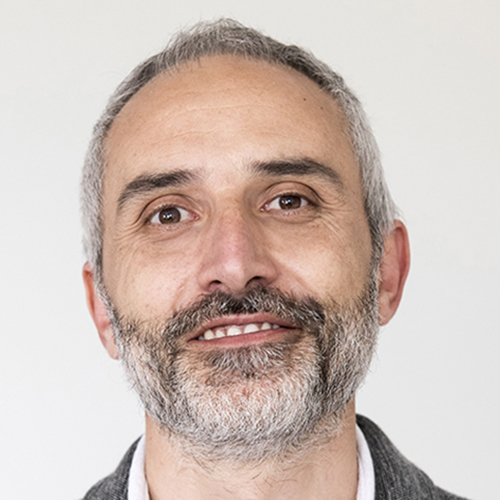
Graziano Lolli
Prof. Lolli started his scientific career in the field of Protein Chemistry and Proteomics to move then to Biophysical Chemistry and X-ray Crystallography.
His research activities focused on oncogenic proteins and epigenetics, participating in or directing drug development campaigns both in pharmaceutical companies and in academia. His multifaceted experience matured in highly competitive and production-driven environments having been employed by Pharmacia Corporation, University of Oxford, Merck&co., University of Padua and University of Zurich, in chronological order. The excellence of his work was recognized by the Federation of the European Biochemical Societies with the Distinguished Young Investigator Award. He currently directs a research team at the Dept. of Cellular, Computational and Integrative Biology, University of Trento, where he is Assistant Professor, developing novel drug candidates inhibiting protein kinases and bromodomains with a clear role in the pathogenesis of cancer, inflammation and neurodegenerative diseases. The laboratory employs a complete set of biochemical, biophysical and structural techniques.
His interest in fully exploring the targetable space drove its decision of founding Sibylla Biotech S.R.L., where the structure-based approach will profit from the revolutionary target identification protocol.
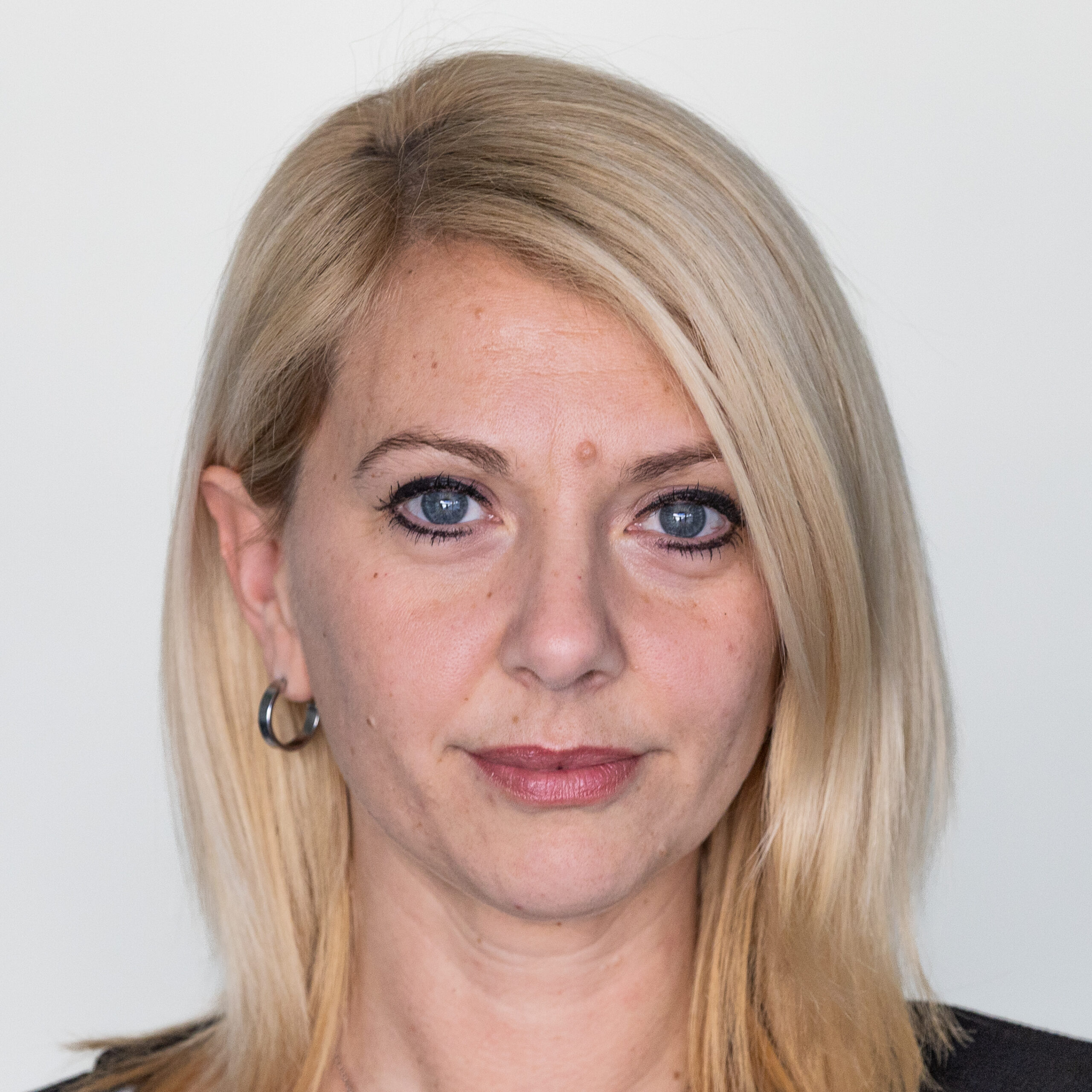
Letizia Lazzaro
Letizia Lazzaro obtained a master’s degree in chemistry specializing in physical chemistry from La Sapienza – University of Rome. During her 10+ years scientific career in industry, she worked at Eurofins S.p.A. as an analyst of raw material and final drugs, taking care of the development and validation of GMP analytical methods, then she moved to “Centro Sviluppo Materiali” working as Researcher first, in the chemistry lab, and then in the Surface Treatments and Corrosion department. In the last 8 years, she has been involved in several projects as Compound Manager supervisor in the Medicinal Chemistry and Peptide units at IRBM S.p.A, increasing her interdisciplinary background in drug discovery. In particular, she managed the internal compound collection (more than 320K compounds) and its enrichment based on analysis of the chemical space and physicochemical properties for the selection of new compounds and coordinated all the related activities from compound QC, data management, purifications of finals compounds/peptides, sample preparation, distributions, orders, and purchases.
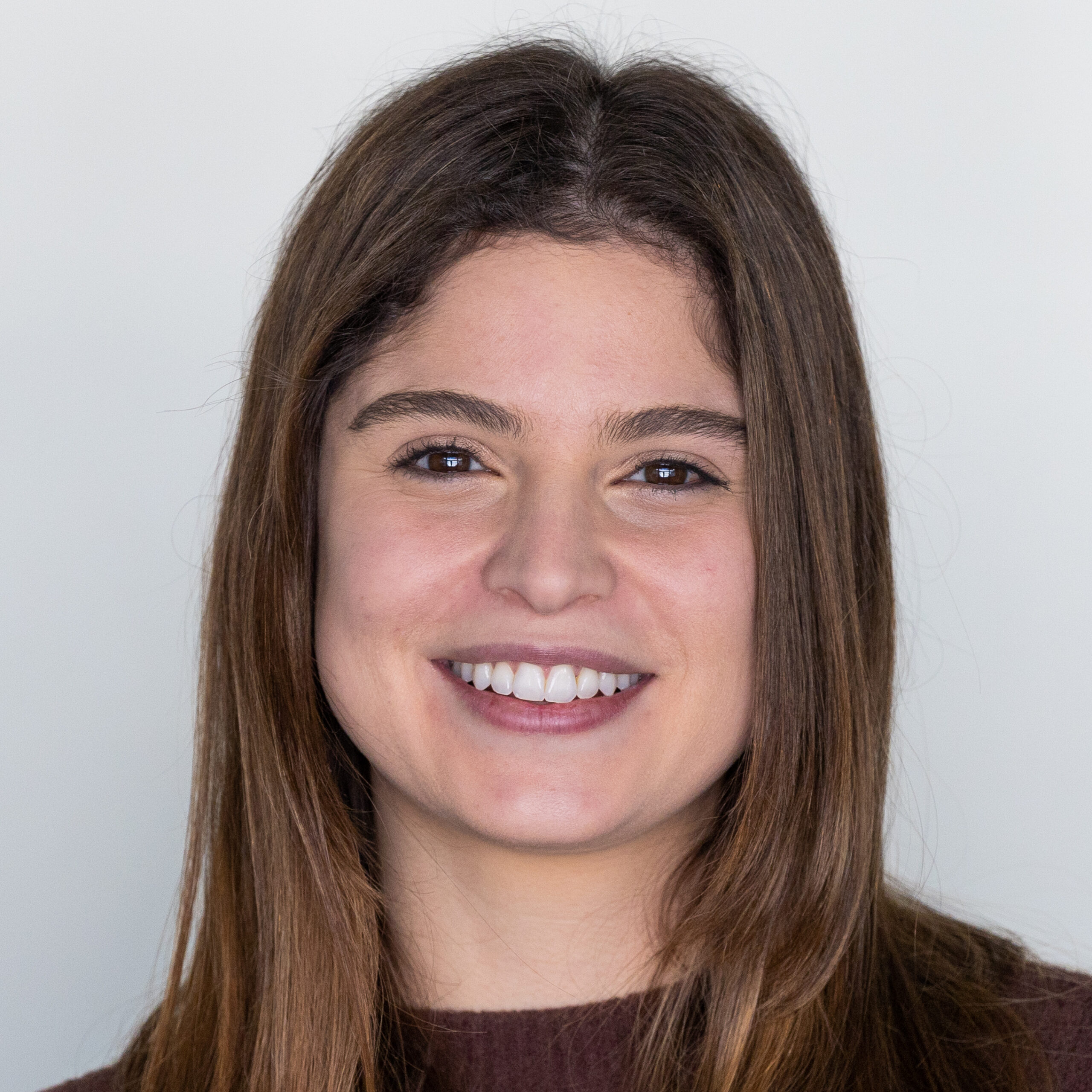
Sophie El-Hayek
Sophie El-Hayek has a Bachelor of Science in Bioinformatics (Lebanese American University – Byblos, Lebanon) and a Master of Science degree in Quantitative and Computational Biology (University of Trento – Italy).
Her scientific background and interest in solving complex strategic and business challenges led her to an internship at F. Hoffmann-La Roche. There, she got familiar with the frameworks for strategic initiatives and commercialization planning activities of medications in their neuropsychiatric portfolio. Also, her passion for driving innovative research and medical advances drove her to another internship at Orobix Life, where she investigated artificial intelligence and machine learning applications in drug discovery and development. In this context, Sophie was involved in testing unsupervised learning approaches for patient stratification for precision medicine.
She is curious, ambitious, willing to learn and invest in her growth, and a team player that enjoys connecting with others and collaborating.
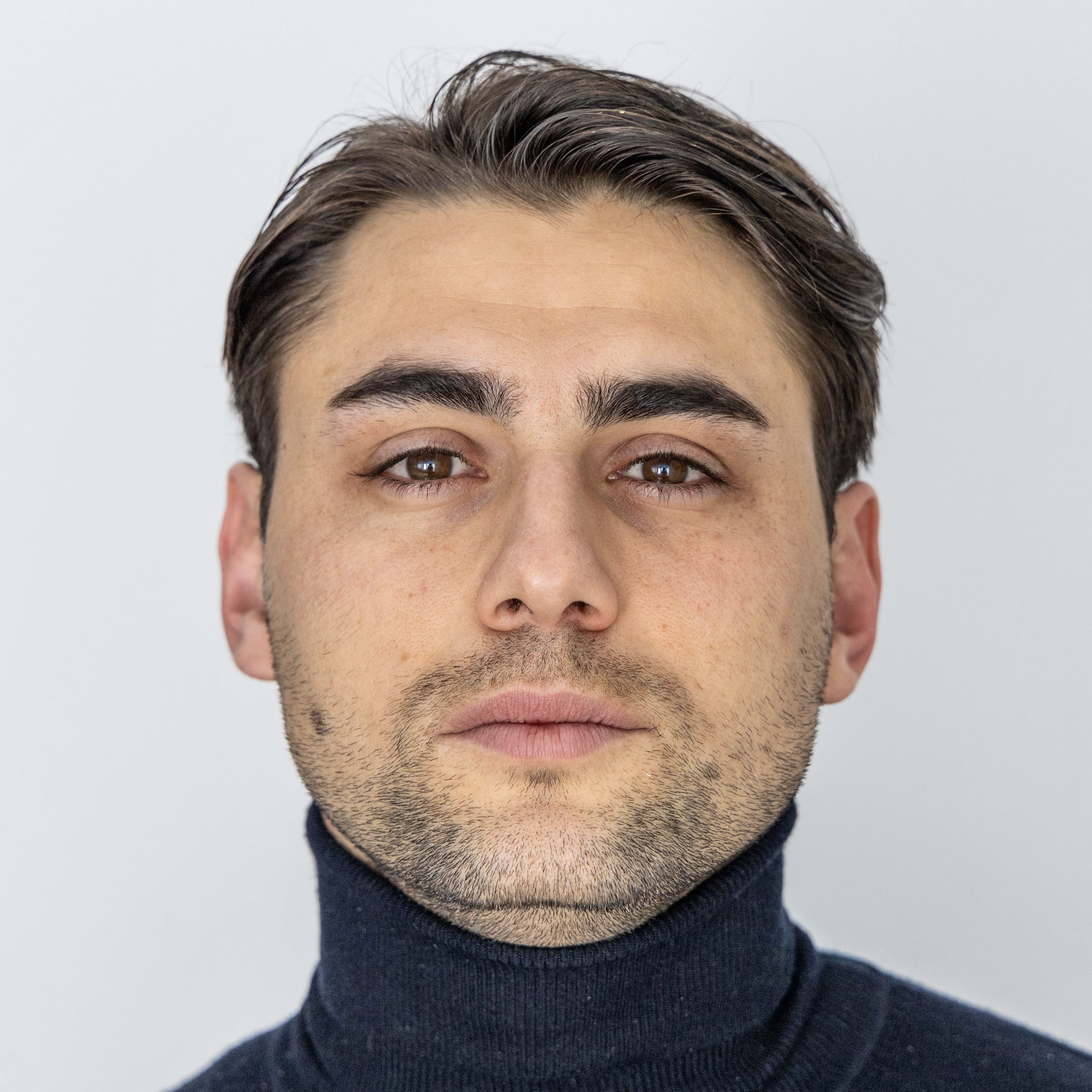
Lorenzo Abrandi
Lorenzo Alibrandi is a dynamic professional with a solid foundation in venture capital investment and startup advisory, with a multidisciplinary education including a Bachelor’s degree in Global Governance from Tor Vergata’s faculty of Economics and dual Master’s degree in Management and Visual and Digital Media from Madrid’s IE Business School.
Lorenzo’s venture capital journey began during his last semester at IE Business School, where his entrepreneurial flair shone bright after winning a European startup competition. This led him to mentor new ventures at his university, eventually landing roles as an Analyst at Orbita Verticale, an Italian Startup Incubator, and later as an Associate and Portfolio Manager at Lumen Ventures SIS S.p.a. Here, he played a pivotal role in establishing the first Simple Investment Company (SIS) in Italy, a €25M Venture Capital fund focusing on Pre-Seed to Series A investments across various sectors.
Prior to his tenure at Lumen, Lorenzo also founded Alea Consulting, a boutique startup consultancy, providing strategic guidance to emerging ventures and startup studios in various Deeptech sectors. His entrepreneurial spirit was further demonstrated through co-founding The Basket, a disruptive startup in supermarket advertising, where he served as COO, driving significant revenue growth through strategic partnerships and innovative product strategies.
Furthermore, Lorenzo’s venture capital prowess extends to his role as an investor at CDP Venture Capital – Evolution Fund, a €150M Deeptech-focused Venture Capital arm of Italy’s sovereign fund. Since its inception, Lorenzo has been at the forefront of backing DeepTech startups across Europe, contributing in investing in a diverse portfolio of notable ventures spanning between Spacetech, Quantum, AI and BioTech, including Sibylla Biotech.
Lorenzo has a multifaceted background and proven track record in venture capital investment on top of a strong entrepreneurial spirit, paired with the ability to identify high-potential startups and drive growth and innovation. Furthermore, his dedication and success as a player for the Italian Paralympic Water Polo Team demonstrate qualities of resilience, teamwork, and determination, bringing to the table a unique perspective and fostering a culture of inclusion, diversity and excellence.
